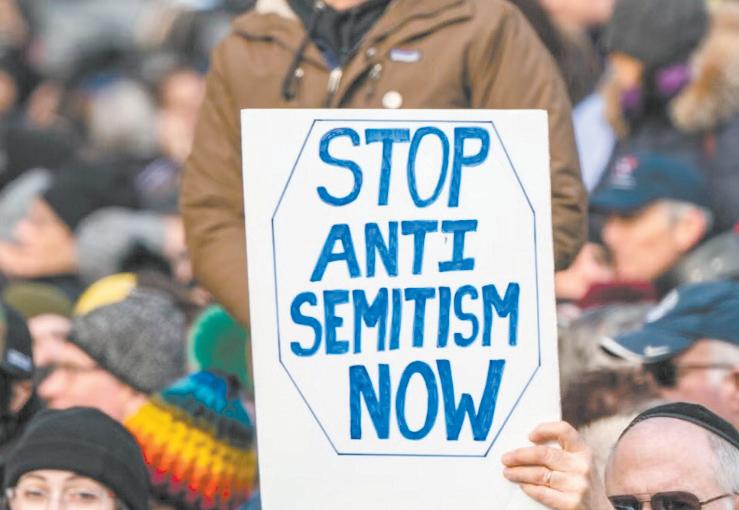
FIGHTING ANTISEMITISM
Survey shows American Jews are more likely to take action against antisemitism since Oct. 7
HEART HEALTH
Dr. Adam Sabbath shares how your smile connects to your heart
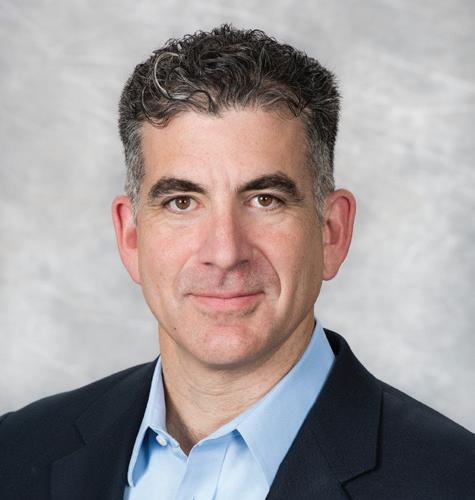


Survey shows American Jews are more likely to take action against antisemitism since Oct. 7
Dr. Adam Sabbath shares how your smile connects to your heart

SHANNON LEVITT | STAFF WRITER
When Zach and Allie Romo board a plane to Israel this November, they’ll be doing more than crossing an ocean; they’ll be crossing a threshold. The young Phoenix couple will join a group of others from across the country on the latest Honeymoon Israel (HI) trip, an immersive, multi-day journey through the Jewish homeland designed to help interfaith, multifaith and culturally diverse couples explore Judaism, identity and community together.
For Zach and Allie, the trip marks several milestones: their first time in Israel, Zach’s nearing completion of his conversion to Judaism and HI’s 10th anniversary.
“It’s really the perfect way for us to visit Israel together,” said Zach. “I appreciate that there will be multifaith elements to the trip. Having that kind of openness and dialogue component is really interesting.”
Zach first learned about Honeymoon Israel from Rabbi Emily Segal of Temple Chai in Phoenix, who has been guiding him through his conversion process. When he and Allie read more about the program, they quickly realized it was an ideal fit.
The couple met as college students at Washington University in St. Louis, where they stayed after graduating. Originally from Mesa, Zach was drawn back to Arizona once the pandemic hit, and the pair decided to relocate to be closer to his family.
Allie, who grew up Jewish but without any formal religious education, began
SHANNON LEVITT | STAFF WRITER
Hundreds of people gathered at the Ina Levine Jewish Community Campus on Sunday, Oct. 5, for a communitywide commemoration marking the third anniversary of the Oct. 7 attacks in Israel. Organized by the Center for Jewish Philanthropy of Greater Phoenix (CJP), the event brought together partners across the Valley’s Jewish community for a day of remembrance, learning and connection.

The commemoration, held in partnership with the Valley of the Sun Jewish Community Center and the Greater Phoenix Jewish Film Festival, also included programming and family workshops led by the Greater Phoenix Board of Rabbis, Jewish Community Relations Council of Greater Phoenix, Anti-Defamation League Arizona, Jewish National Fund-USA, BBYO, Hillel at Arizona State University, Shevet Shemesh, The Jewish Agency for Israel and several local synagogues.
For attendee Stan Meyer, being surrounded by others who shared his grief was an essential part of his experience.
“I wanted to grieve and mourn this terrible tragedy with others in a Jewish space,” he said.
At the entrance to the main exhibit, Meyer lingered over a series of informational placards detailing the events and human stories of that day. The panels, he said, helped him put faces and names to the tragedy that had filled news broadcasts for months.
SEE COMMUNITY, PAGE 3

Lawyers discuss what the One Big Beautiful Bill Act means for your estate planning and taxes. See page 15.



Israel as the community engagement trip leader for the upcoming Phoenix delegation.
SOPHIE STERN
said Jon Meyers, director of ADDPC.
about her Judaism with her fellow council members and speaking out for her rights
reconnecting with her heritage through her work after college, collaborating with the Washington University Hillel staff. When the couple moved to the Valley, they looked for a suitable synagogue before ultimately finding a spiritual home at Temple Chai, where Zach eventually enrolled in the congregation’s “Introduction to Judaism” course.
Their story — a couple exploring Judaism together from different starting points — is exactly the kind of pairing Honeymoon Israel was created to serve.
In 2013, Mike Wise, a Jewish nonprofit professional, came across a Pew Research Center study showing a sharp increase in interfaith marriages and a growing number of young Jews identifying as secular or unaffiliated. Instead of seeing this as a loss, Wise saw potential.
January 6
January 20
January 6
February 3
January 20
February 17
“The trip is intentional and lovely and makes you feel good — whether you’re Jewish or not,” Garcia said. “HI wants to share what’s beautiful about being Jewish, but also talk about the complexities involved. Above all, it’s about community building.”
said Jon Meyers, director of ADDPC.
“Our hope is to create and promote opportunities for people to be embraced, become part of the community and find equitable opportunities wherever they might live,” he said.
“Our hope is to create and promote opportunities for people to be embraced, become part of the community and find equitable opportunities wherever they might live,” he said.
Meyers first came to know Stern through her mother, Amy Silverman, who read her personal essays about raising a daughter with Down syndrome on KJZZ, National Public Radio’s Phoenix affiliate station.
Garcia, who describes her own Jewish upbringing as “untraditional,” hadn’t attended Jewish summer camp nor had a bat mitzvah, yet still felt connected to her heritage. Honeymoon Israel became a transformative experience for her and for her husband, who is not Jewish.
Meyers first came to know Stern through her mother, Amy Silverman, who read her personal essays about raising a daughter with Down syndrome on KJZZ, National Public Radio’s Phoenix affiliate station.
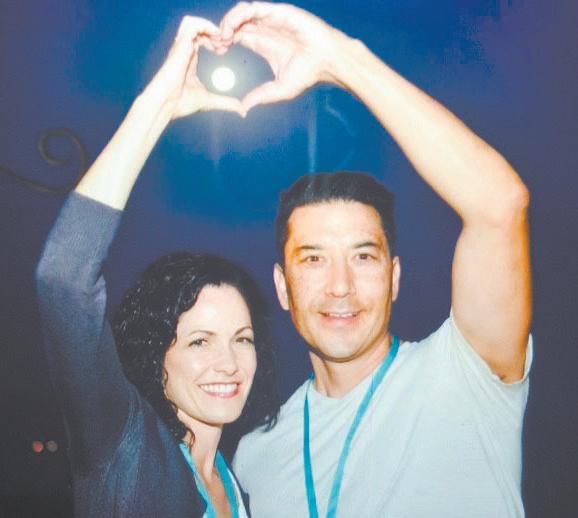
Meyers was so captivated by the essays that he reached out to Silverman, and the two became friends.
Meyers was so captivated by the essays that he reached out to Silverman, and the two became friends.
“It was my first time in Israel,” she said. “For my husband, it was a chance to get exposure to Judaism in a welcoming, tangible way: the sights, sounds, tastes, smells. It was really impactful.”
That’s how Stern first learned of the open council seat, but there’s no doubt she earned her position, Meyers said.
August 25 September 1 September 8
“Why not see this as a plus one for the Jewish community instead of a negative?” he asked. “You can’t help who you fall in love with. Let’s welcome these couples warmly into the Jewish community.”
August 25
September 1
September 15
March 10
February 3
September 8
October 6
February 17
March 24
March 10
March 31
March 24
April 7
March 31
April 21
April 7
May 5
April 21
May 19
That’s how Stern first learned of the open council seat, but there’s no doubt she earned her position, Meyers said.
To become a council member, Stern had to apply and demonstrate that she had something valuable to contribute, he said.
She already has some practice at
about her Judaism with her fellow council members and speaking out for her rights
“One time, I was in class and someone called me the R-word and I told him not to. The teacher was in the hallway and another student repeated the word,” she said. Rather than letting the situation go, she told her theater teacher, who was able
She already has some practice at
“One time, I was in class and someone called me the R-word and I told him not to. The teacher was in the hallway and another student repeated the word,” she said. Rather than letting the situation go, she told her theater teacher, who was able to intervene.
“If someone has a disability, saying the R-word is like saying the F-word,” Stern said.
cornerstone of the experience.
“If someone has a disability, saying the R-word is like saying the F-word,” Stern said.
While performing in the musical “Hairspray,” she had another occasion to tangle with the offensive word, which appears in the script.
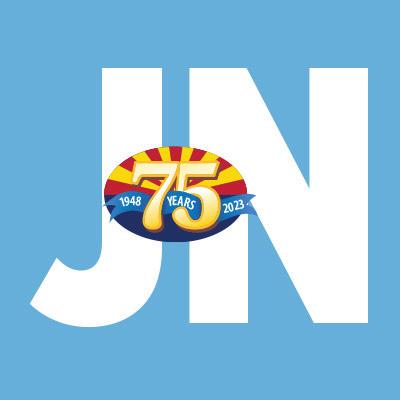

While performing in the musical “Hairspray,” she had another occasion to tangle with the offensive word, which appears in the script.
Wise put his thoughts into a paper he titled “Honeymoon Israel,” which he presented to the Jewish Federations of North America. Once his essay was online, it caught the attention of Avi Rubel, then a Jewish educator and executive at Masa Israel Journey.
September 15
October 13**
October 6
October 20
October 13**
November 3
October 20
November 10
November 3
By March 2014, the two met in person, officially co-founding Honeymoon Israel. Later that year, a family foundation invested in their idea, allowing them to dedicate themselves full-time to launching the program.
November 17
November 10
December 1
That first trip was led by Rabbi Dr. Shmuly Yanklowitz, founder and leader of several Valley Jewish organizations. After returning home, Garcia and her husband stayed in touch with the couples they met, including having Shabbat dinner at Yanklowitz’s home.
To become a council member, Stern had to apply and demonstrate that she had something valuable to contribute, he said.
“She’s on the council because she deserves to be on the council,” he said.
“They want the opportunity to talk about it all with other couples,” Sherr said. “We have many couples, particularly those in interfaith or multifaith relationships, where one partner has a strong connection to Israel and the other does not. They want to understand each other better. We’ve shifted our trips to make sure participants get diverse perspectives and lots of space for meaningful conversations.”
“That’s really bad and my friend said it on stage. I was not OK with that, so I went to the director and told her it was a bad word for people with disabilities, but she wouldn’t take it out,” Stern said.
“That’s really bad and my friend said it on stage. I was not OK with that, so I went to the director and told her it was a bad word for people with disabilities, but she wouldn’t take it out,” Stern said.
Stern is creating a life and career as a member of her community, which makes her a great addition.
“She’s on the council because she deserves to be on the council,” he said.
Stern is creating a life and career as a member of her community, which makes her a great addition.
One moment from the trip that stuck with her happened when her husband, Joseph, decided he wanted to buy a tallit.
Stern graduated from McClintock High School in Tempe last year and now attends Glendale Community College, with a focus on dance. She is a regular performer at Detour Company Theatre, a Scottsdale theatre company for adults with intellectual, developmental and physical disabilities.
Sherr noted that each journey includes at least four formal discussion sessions, facilitated by the trip leaders.
She let her mother know about the conflict and they were able to convince the director of the need to remove the word from the script.
She let her mother know about the conflict and they were able to convince the director of the need to remove the word from the script.
“People can get vulnerable with each other,” she said. “Many tell us that the conversations were surprising and powerful and that they were grateful to have an opportunity to explore big questions with others facing similar challenges.”
“My friend Al was next to me when I told the director and he gave me the biggest hug ever and said that he loved me so much,” Stern said. Sadly, Al died in a car crash on Oct. 24, 2021.
Heart Can’t Even Believe It: A Story of Science, Love and Down Syndrome,” Silverman’s book about her daughter. When Gesher’s speakers’ bureau, Damon Brooks & Associates, was asked to find a speaker about Down syndrome for an event this spring, Hummell first asked Silverman to speak, thinking Stern might be too young.
November 17
June 9
May 5
May 19
July 14
June 9
August 4
July 14
August 18*
December 15
December 1
of
Their first trip, in 2015, included couples from Phoenix and Los Angeles, marking the start of what would become a successful business.
August 4
August 18*
“I wasn’t sure if that was appropriate,” she recalled. “But some of the more observant people traveling with us reassured us and even went shopping with him.” The tallit later became part of their family’s Jewish rituals, held over their children during their b’nai mitzvah ceremonies.
December 15 *Best of Magazine **Annual Directory
Among that first group of travelers was Amanda Garcia, who will now return to
Stern graduated from McClintock High School in Tempe last year and now attends Glendale Community College, with a focus on dance. She is a regular performer at Detour Company Theatre, a Scottsdale theatre company for adults with intellectual, developmental and physical disabilities.
“It was wonderful because it really helped him feel more connected,” Garcia said.
In fact, when Stern attended her first council meeting in January, she couldn’t wait to tell people of her involvement with Detour and share information about its upcoming shows.
Each HI trip includes opportunities for participants to have facilitated conversations about faith, identity and Israel — topics that often feel daunting to approach.
In fact, when Stern attended her first council meeting in January, she couldn’t wait to tell people of her involvement with Detour and share information about its upcoming shows.
“There’s no question that she is going to thrive,” Meyers said. “She’s very gregarious and passionate about the things that matter to her.”
According to Laura Sherr, HI communications director, these dialogues are a
“That was hard; it’s very hard to get emotions out and I was very, very upset,” she said.
“My friend Al was next to me when I told the director and he gave me the biggest hug ever and said that he loved me so much,” Stern said. Sadly, Al died in a car crash on Oct. 24, 2021.
“That was hard; it’s very hard to get emotions out and I was very, very upset,” she said.
For Zach and Allie, such conversations have already begun, not just between them, but with their circle of friends.
On the recent anniversary of his death, Stern made a cake and took it to the crash site.
“We’ve told our close group of friends that we’re going and why,” Allie said. “They’ve been really supportive. I think everyone is holding it differently, but they’ve created space for us to talk about it.”
Heart Can’t Even Believe It: A Story of Science, Love and Down Syndrome,” Silverman’s book about her daughter. When Gesher’s speakers’ bureau, Damon Brooks & Associates, was asked to find a speaker about Down syndrome for an event this spring, Hummell first asked Silverman to speak, thinking Stern might be too young.
They decided instead that Stern should tell her own story; it’s a real bonus that she is not afraid of public speaking.
“It’s not the same when someone tries to tell a person’s story for them,” Hummell said.
They decided instead that Stern should tell her own story; it’s a real bonus that she is not afraid of public speaking.
“It’s not the same when someone tries to tell a person’s story for them,” Hummell said.
“I don’t know how I did it without crying. I’m so proud of myself,” she said.
On the recent anniversary of his death, Stern made a cake and took it to the crash site.
“I don’t know how I did it without crying. I’m so proud of myself,” she said.
Amy Hummell, executive director of Gesher Disability Resources, agreed that Stern is a good fit for ADDPC because of her ability to self-advocate.
Additionally, helping people with disabilities find jobs was one of the reasons for acquiring the bureau. Unemployment in the disability community is upwards of 75% and of that percentage, 75% are ready, willing and able to work — but haven’t been given the opportunity, Hummell said.
Directory
“There’s no question that she is going to thrive,” Meyers said. “She’s very gregarious and passionate about the things that matter to her.”
Stern looks forward to sharing insights
For Allie, the trip is also a way to reclaim and deepen her Jewish roots. “I want to explore Jewish identity, because it’s some-
Stern looks forward to sharing insights
Hummell co-hosted a book event with Meyers a few years ago for “My
Amy Hummell, executive director of Gesher Disability Resources, agreed that Stern is a good fit for ADDPC because of her ability to self-advocate.
Hummell co-hosted a book event with Meyers a few years ago for “My
AZ 85254 Phone: 602.870.9470 | Fax: 602.870.0426 | editor@jewishaz.com | advertising@jewishaz.com subscriptions@jewishaz.com | www.jewishaz.com
Phone: 602.870.9470 | editor@jewishaz.com | advertising@jewishaz.com subscriptions@jewishaz.com | www.jewishaz.com
PUBLISHER
PUBLISHER Jewish Community Foundation of Greater Phoenix
12701 N. Scottsdale Road, Suite 201, Scottsdale, AZ 85254 Phone: 602.870.9470 | Fax: 602.870.0426 | editor@jewishaz.com | advertising@jewishaz.com subscriptions@jewishaz.com | www.jewishaz.com
Jewish Community Foundation of Greater Phoenix
PUBLISHER
ADVERTISING SALES CONSULTANT Jodi Lipson | 602.639.5866 jlipson@jewishaz.com
SENIOR ACCOUNT EXECUTIVE Jodi Lipson | 602.639.5866 jlipson@jewishaz.com
Additionally, helping people with disabilities find jobs was one of the reasons for acquiring the bureau. Unemployment in the disability community is upwards of 75% and of that percentage, 75% are ready, willing and able to work — but haven’t been given the opportunity, Hummell said.
“People have it in them to speak up but don’t know how, and often they’re not cheered on. Sophie has family support
“People have it in them to speak up but don’t know how, and often they’re not cheered on. Sophie has family support
GENERAL MANAGER Rich Solomon | 602.639.5861 rsolomon@jewishaz.com
Jewish Community Foundation of Greater Phoenix
GENERAL MANAGER
ASSOCIATE PUBLISHER Rich Solomon | 602.639.5861 rsolomon@jewishaz.com
MANAGING EDITOR
MANAGING EDITOR Mala Blomquist | 602.639.5855 mblomquist@jewishaz.com
Rich Solomon | 602.639.5861 rsolomon@jewishaz.com
Mala Blomquist | 602.639.5855 mblomquist@jewishaz.com
MANAGING EDITOR
STAFF WRITER
STAFF WRITER Shannon Levitt | 602.639.5854 slevitt@jewishaz.com
Mala Blomquist | 602.639.5855 mblomquist@jewishaz.com
Shannon Levitt | 602.639.5854 slevitt@jewishaz.com
STAFF WRITER
Shannon Levitt | 602.639.5854 slevitt@jewishaz.com
ADVERTISING SALES CONSULTANT Jodi Lipson | 602.639.5866 jlipson@jewishaz.com
SUBSCRIPTIONS 602.870.9470 x 1 subscriptions@jewishaz.com
SUBSCRIPTIONS 602.870.9470 x 1 subscriptions@jewishaz.com
SUBSCRIPTIONS 602.870.9470 x 1 subscriptions@jewishaz.com
GRAPHIC DESIGNER Ricki Urban | 602.870.9470 X 2 advertising@jewishaz.com
GRAPHIC DESIGNER Ebony Brown | 410.902.2333 ads_phoenixjn@midatlanticmedia.com
GRAPHIC DESIGNER Ebony Brown | 410.902.2333 ads_phoenixjn@midatlanticmedia.com

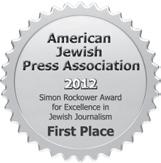

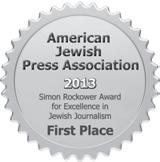

Inside, visitors were invited to select a card bearing the photo and brief biography of a victim from Oct. 7. Each card included a QR code linking to further details about that individual’s life and story. Participants then lit a candle in their honor, placing it within an installation arranged in the shape of “10/7” beside a Star of David.
The exhibition, conceived and curated by Sapir Tiram, CJP’s senior community shlicha (Israeli emissary), combined art, memory and storytelling. A video installation featured survivors sharing personal testimonies. Nearby, photographs depicted hostages’ homecomings, while art pieces incorporated Israel’s national flower, the kalanit (red crown anemone), as a symbol of resilience. Another wall displayed bumper stickers created by victims’ families, and a sculptural piece filled with children’s toys paid tribute to a family killed in their home on Kibbutz Kfar Azza.
“It was what people needed, to feel more engaged and to learn through a mix of reading, listening, viewing art and doing things,” Tiram reflected after the event. “We can always do better, but at the end of the day, I think it was the right concept. I was honored to provide that.”
Tiram, who also coordinated a ceremony the following day at Pardes Jewish Day School, said the process of assembling the exhibit was emotionally challenging.
“As an Israeli, it was difficult to go through the materials — videos, photographs, testimonies — and decide what was appropriate to share,” she said. The preparation took about three months, during which she carefully balanced sensitivity with the need for authenticity and education.
All afternoon, she overheard visitors expressing how deeply they were moved. “It was meaningful for them to engage and learn more through art and other
thing I feel I missed out on growing up,” she said.
Garcia, who is now the Anti-Defamation League of Arizona’s major gift officer, understands that feeling well.
“That’s the beauty of this trip,” she said. “It’s a chance to reflect and reconnect, no matter where you are in your Jewish journey.”
Although the discussions form the emotional heart of Honeymoon Israel, participants also experience Israel as travelers, such as visiting historical and cultural sites, meeting Israeli couples and spending a day volunteering.
“The trips aren’t just about sightseeing,” Sherr said. “They’re about seeing the diversity of Israel and having space to process what that means.”
For Garcia, returning to Israel in a new role feels like closing a circle.
things, not just reading about it,” Tiram said.
Among the many local volunteers assisting visitors were members of Shevet Shemesh–Israel Scouts of Arizona, who guided guests and shared their own perspectives on Israel and connection.
For Noya Maimon, 15, joining the Scouts after Oct. 7 was a way to strengthen that connection. “I wanted to foster my connection to Israel, especially then,” she said.
Lizzie Bashkin, 17, joined the Scouts before Oct. 7, initially because of a scholarship opportunity. But after the attacks, her participation took on a deeper meaning.
“My grandfather was raised in Israel, but I always felt a distance from it,” Bashkin said. “Now I have a community around me that understands why it’s important to feel more connected to Israel.”
The commemorative programming extended beyond the exhibit itself. In classrooms throughout the campus, children and teens participated in agebased workshops designed to help them process emotions and express solidarity through creativity.
The youngest attendees painted rocks, decorated candles and made cards featuring messages of hope and love. Tweens crafted paper flowers and engaged in guided discussions about Israel and Jewish resilience. Older teens explored how to navigate Jewish identity on college campuses and were invited to write poetry or begin art projects reflecting their feelings about Oct. 7.
In the social hall, attendees could watch a selection of short Israeli films presented by the Greater Phoenix Jewish Film Festival, offering additional perspectives on grief, courage and community rebuilding.
For Fran Richter, the exhibit evoked powerful memories from her own recent visit to Israel. She traveled there last February, fulfilling a trip she had delayed at her daughter’s urging. Among the
“This will be my first time going without my spouse or family,” she said. “I’m excited to have an introspective experience this time and to focus on helping others have their own meaningful journeys.”
Originally scheduled for summer 2025, the trip was postponed to November due to the war with Iran. Some couples had to drop out, and the Phoenix delegation will now travel with participants from New York and Miami. More couples from the Valley are slated for a follow-up trip in February 2026.
In its 10 years, Honeymoon Israel has evolved from a concept to a worldwide movement. The organization has led more than 160 trips with over 3,000 couples. Along the way, it’s weathered global disruptions — from the pandemic to the aftermath of Oct. 7 — and adapted to changing needs. HI has launched alternative trips to destinations like Argentina, added


sites she visited was the Nova music festival grounds, where some of the most harrowing violence took place.
“The burnt-out cars made a big impact on me,” Richter said. “It brought home how there was no way to escape on that terrible day. It was shattering.”
Richter said the Phoenix commemoration helped her continue processing what she saw. “Seeing how our community here remembers and honors those lives helps. It connects us,” she said.
The event’s atmosphere was both somber and restorative. Visitors spoke in hushed tones as they viewed the exhibits, lit candles and signed up to get more involved.
Two years after the day that reshaped Israeli and Jewish life worldwide, Greater Phoenix’s Jewish community gathered to remember and reflect one candle, one conversation, one story at a time. JN
Jewish News is published by the Jewish Community Foundation of Greater Phoenix, a component of the Center for Jewish Philanthropy of Greater Phoenix.
diverse speakers and deepened its focus on dialogue about Israel and Jewish identity.
Yet its mission remains unchanged: to make young couples feel that they belong in the Jewish community, no matter their background.
For the Romos, that sense of belonging is already growing.
“Temple Chai has been such a welcoming place for us, and this feels like a good next step,” Zach said.
Ten years after its founding, Honeymoon Israel continues to offer couples a way to connect with their faith, heritage and each other. While the organization continues to adapt, Sherr said it remains true to its original premise, that love, in all its forms, can be a gateway into Jewish life. JN
For more information, visit honeymoonisrael.org.
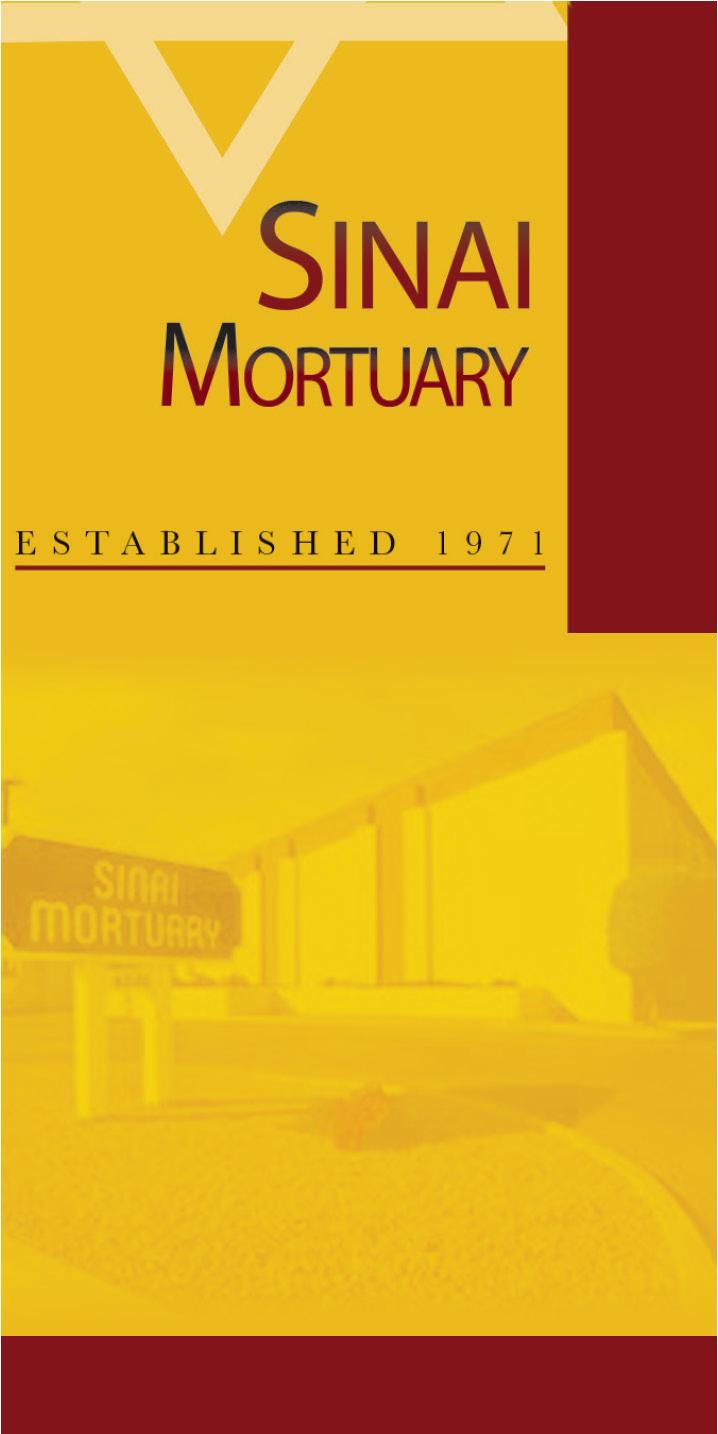

GRACE GILSON | JTA AND SHANNON LEVITT | STAFF WRITER
Jewish journalist and Arizona native Emily Wilder was deported to Istanbul, Turkey on Friday, Oct. 10, after having been detained by the Israeli military several days earlier while reporting on an aid flotilla headed to Gaza. Wilder grew up in an Orthodox community in Phoenix and graduated from Shearim Torah High School.
After her release, Wilder wrote about her experience in Jewish Currents, the news outlet she reports for.
Wilder was part of a group that included dozens of boats attempting to deliver humanitarian aid to Gaza. She was on board a boat called The Conscience, the flagship vessel of the flotilla organized by the Freedom Flotilla Coalition, when the Israeli military intercepted and detained her, other journalists and aid workers on Monday, Oct. 6.
The following day, Jewish Currents’ X account first posted that the flotilla carrying Wilder had been intercepted by the Israeli military.
“Jewish Currents has learned that the
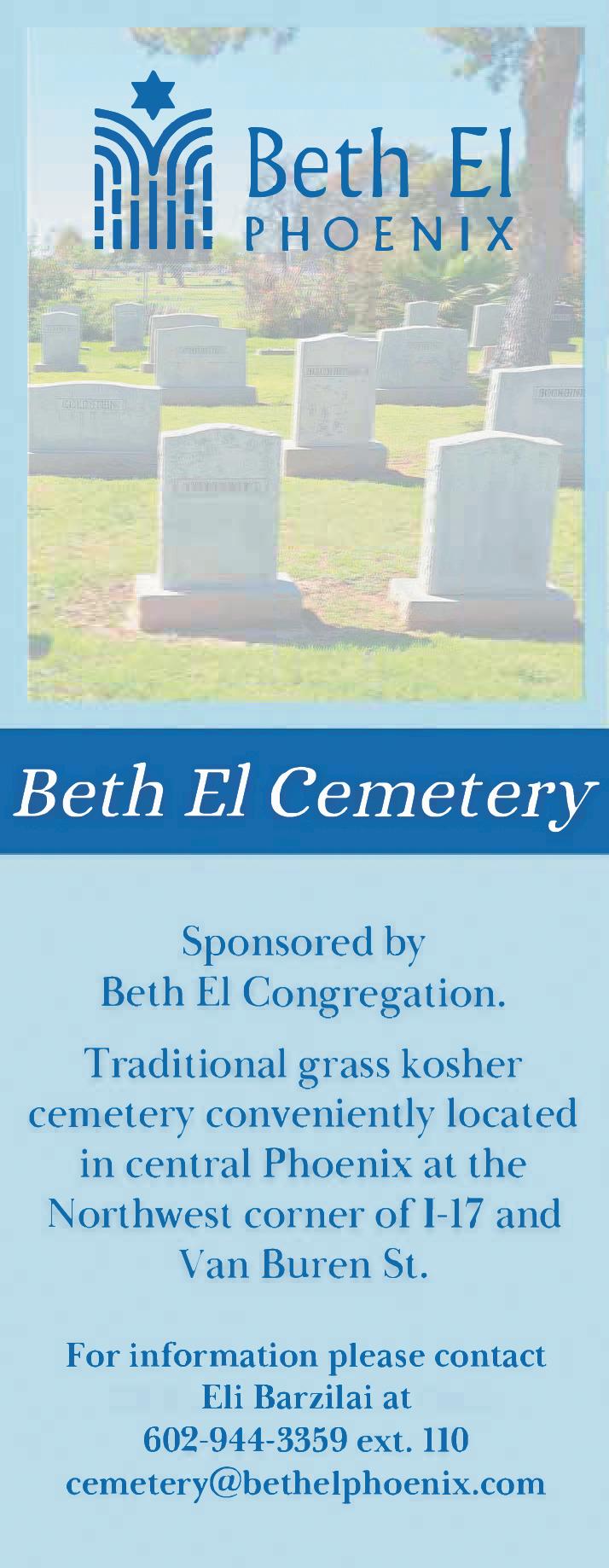
Conscience flotilla, with @vv1lder (Emily Wilder) aboard reporting for us, has been intercepted and boarded by the Israeli military. Communications with Emily and the rest of the boat have been cut. We are awaiting further updates,” the post read.
Jewish Currents regularly reports on Israel and Palestine and has labeled Israel’s actions in Gaza a genocide. As a student at Stanford University, Wilder was a member of Jewish Voice for Peace and Students for Justice in Palestine, both anti-Zionist groups. She graduated in 2020 and the next year, 2021, she was fired from the Associated Press due to her social media posts about the IsraeliPalestinian conflict, which were critical of Israel.
In an email to subscribers, Jewish Currents’ publisher Daniel May said the publication sent Wilder on a flotilla because of the value of the reporting she could produce.
“Jewish Currents commissioned Emily’s reporting because we know that Israel’s unprecedented restrictions on journalists have facilitated the war crimes perpetrated in Gaza,” May wrote. “We also know that the flotillas are an important story in themselves.”
Almost a week before Wilder set sail, the Global Sumud Flotilla, filled with dozens of boats, was intercepted. Hundreds of participants were detained and later deported, including Swedish activist Greta Thunberg who alleged that she had been “kidnapped and tortured” by the Israeli military.
Wilder spoke about the Sumud’s detention with Democracy Now, a progressive news outlet, in the days before her own journey.
“On the eve, as Yom Kippur was beginning, Israel intercepted an unarmed, nonviolent, civilian humanitarian mission in international waters,” Wilder said in the interview. “It just makes it ever more urgent and clear that Israel does not represent my voice and does not — is not acting to protect Jewish people across the world.”
In 2020, Wilder spoke with Jewish News about why she wanted to be a journalist.
“I always wanted to do journalism. It helps people understand something about the world. You’re asking questions about the world, and then you’re answering those questions with evidence. And journalism is interesting, because people read it, and you’re helping to influence the real world,” she said.
In October, she explained to Democracy Now the reason she decided to report on
The Conscience flotilla even knowing the risk of Israeli detention.
“I am here to witness this historic moment … to document this historic movement and, hopefully, to report from on the ground in Gaza,” she told the outlet.
On her Instagram account, Wilder posted about her journey as it got underway with a sense of optimism.
“Today, the @gazafreedomflotilla’s Conscience sets sail from the boot of Italy, with hopes of bringing ~70 media and medical workers across the Mediterranean to Gaza’s shores amid Israel’s blockade on international press and killing of doctors and journalists,” wrote Wilder last week in a post.
On Tuesday, Oct. 7, after its military had intercepted the flotilla, Israel’s foreign ministry blasted the flotilla participants in a post on X.
“Another futile attempt to breach the legal naval blockade and enter a combat zone ended in nothing,” the post read.
By Wednesday, Oct. 8, executive staff members of Jewish Currents were posting on X asking for supporters to put pressure on the U.S. State Department for help, especially after troubling reports about the treatment of Sumud detainees.
“We have seen disturbing reports regarding the treatment of the Sumud’s participants, including some about specific humiliation of Jewish participants as traitors,” posted Arielle Angel, Jewish Currents’ editor-in-chief. She was referring to David Adler and Tommy Marcus, American Jews who reported being singled out by Israeli soldiers, forced onto their hands and knees and called terrorists.
Wilder is currently a resident of Los Angeles, California, so Jewish Currents’ social media accounts and May’s email asked their followers to call Wilder’s congressional representative Jimmy Gomez and Senators Adam Schiff and Alex Padilla, all Democrats, to advocate for her.
“As the Representative of Emily Wilder in Congress, I must insist on an immediate update from your department on the efforts being made to secure her safe treatment and immediate release,” Gomez wrote to the State Department and the Trump administration on Wednesday, Oct. 8. “Failure to take immediate and comprehensive action to secure the release of Ms. Wilder and other detainees would implicate [the State] department and the Trump administration in an unconscionable abandonment of basic American principles and a dangerous

undermining of our diplomatic standing internationally.”
On Friday, Oct. 10, Jewish Currents updated its social media with news of Wilder’s deportation to Turkey. It was the same day a ceasefire between Israel and Hamas formally went into effect and humanitarian aid to Gaza began increasing.
“Emily Wilder was deported to Istanbul today, alongside many of the other flotilla participants, and is safe and hopefully heading home to LA shortly. Thank you so much for your advocacy. More coverage soon!” read the post.
In her interview with Jewish News on the cusp of her professional journalistic career, Wilder said that although she’s “not fully observant right now,” her background impacts everything she does and gives her reason to feel she’ll approach reporting in a unique way.
“Coming from a small minority community within a broader local setting means that I’m a little more in tune with what other minority communities’ unique experiences might be. I try really hard to honor and cover accurately different communities’ unique experiences,” she said.
In 2013, while still a Shearim Torah High School student, Wilder wrote a brief article for Jewish News about a leadership program she was part of.
“We each have our own way of serving G-d, relating to others and doing good deeds. This means that everyone has the ability to be a leader in his or her own way, as long as he or she chooses to work for it,” she wrote. JN



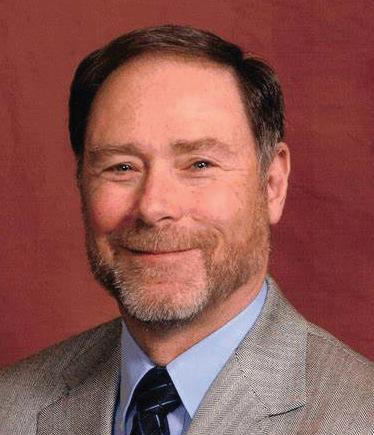



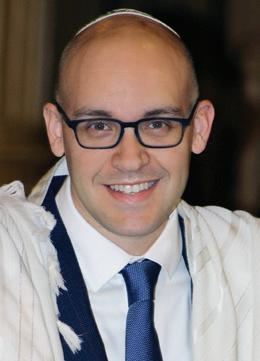






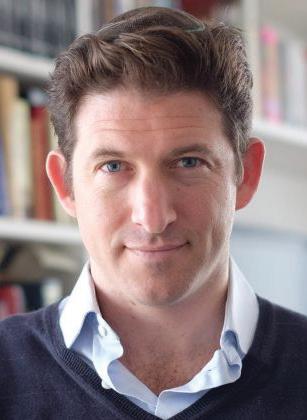
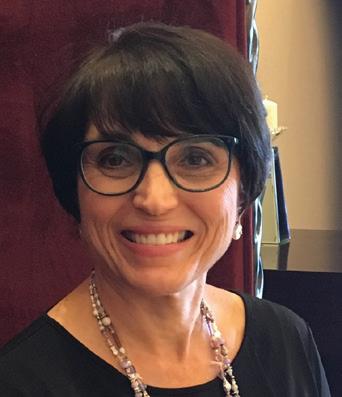





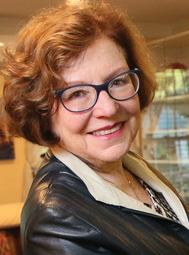




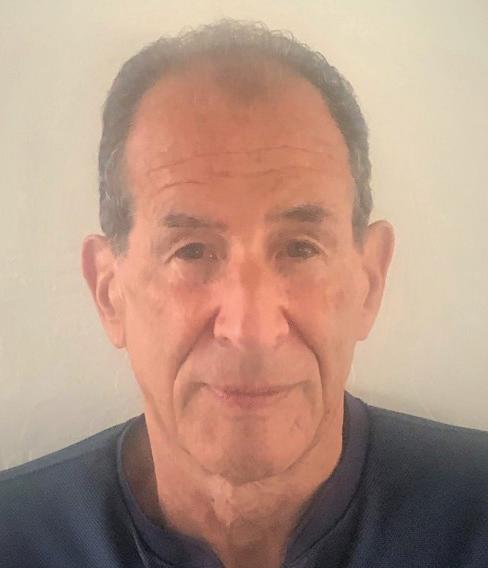











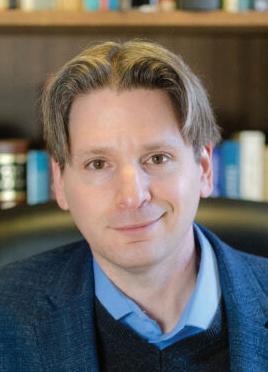















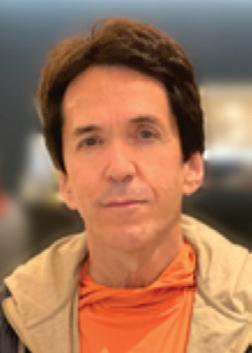


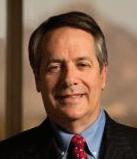






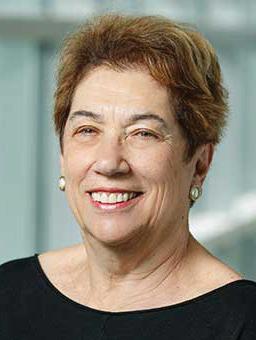
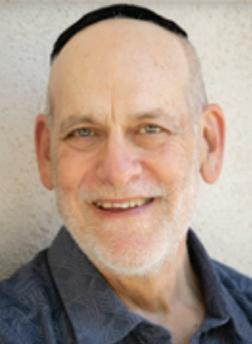
Valley
Valley


IN-PERSON IN UTAH & VIRTUAL





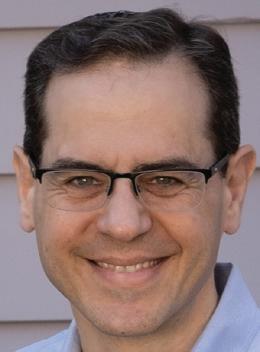





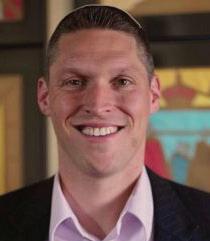


Midrash wishes everyone a shana tovah, a happy new year filled with joy and love. We invite you to join us in pursuit of improving lives in our communities through transformative learning and action. Here’s how you can plug into our work this year:

wishes everyone a shana tovah, a happy new year filled with joy and love. We invite you to join us in pursuit of improving lives in our communities through transformative learning and action.
Here’s how you can plug into our work this year:

joy and love. We invite you to join us in pursuit of improving lives in our communities through transformative learning and action.
Here’s how you can plug into our work this year:
Here’s how you can plug into our work this year:
Here’s how you can plug into our work this year:
our
with joy and love. We invite you to join us in pursuit of improving lives in our communities through transformative learning and action.
and action.
Valley Beit Midrash wishes everyone a shana tovah, a happy new year filled with joy and love. We invite you to join us in pursuit of improving lives in our communities through transformative learning and action. Here’s how you can plug into our work this year:
1. with us at our upcoming classes. We have multiple pluralistic o erings each week and options for both virtual or in-person learning.
1. with us at our upcoming classes. We have multiple pluralistic o erings each week and options for both virtual or in-person learning.
1. with us at our upcoming classes. We have multiple pluralistic o erings each week and options for both virtual or in-person learning.

Valley Beit Midrash wishes everyone a shana tovah, a happy new year filled with joy and love. We invite you to join us in pursuit of improving lives in our communities through transformative learning and action.
and action.
Here’s how you can plug into our work this year: Learn with us at our upcoming classes. We have multiple pluralistic o erings each week and options for both virtual or in-person learning.
Learn with us at our upcoming classes. We have multiple pluralistic o erings each week and options for both virtual or in-person learning.
Learn with us at our upcoming classes. We have multiple pluralistic o erings each week and options for both virtual or in-person learning.
2. with us and volunteer with Arizona Jews for Justice to help uplift the most vulnerable members of our community.
2. with us and volunteer with Arizona Jews for Justice to help uplift the most vulnerable members of our community.
Here’s how you can plug into our work this year: with us at our upcoming classes. We have multiple pluralistic o erings each week and options for both virtual or in-person learning. with us and volunteer with Arizona Jews for Justice to help uplift the most vulnerable members of our community.
Learn with us at our upcoming classes. We have multiple pluralistic o erings each week and options for both virtual or in-person learning.
2. with us and volunteer with Arizona Jews for Justice to help uplift the most vulnerable members of our community.
pluralistic o erings each week and options for both virtual or in-person learning.
Serve with us and volunteer with Arizona Jews for Justice to help uplift the most vulnerable members of our community.
Serve with us and volunteer with Arizona Jews for Justice to help uplift the most vulnerable members of our community.
Serve with us and volunteer with Arizona Jews for Justice to help uplift the most vulnerable members of our community.
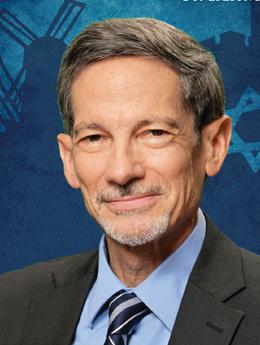
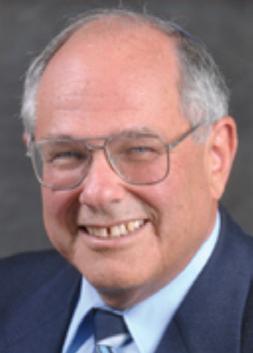
Serve with us and volunteer with Arizona Jews for Justice to help uplift the most vulnerable members of our community.
3. Reach out if you are looking for internship or fellowship opportunities for teens and young adults. We would be thrilled to tell you more about our leadership development programs.
3. Reach out if you are looking for internship or fellowship opportunities for teens and young adults. We would be thrilled to tell you more about our leadership development programs.
Serve with us and volunteer with Arizona Jews for Justice to help uplift the most vulnerable members of our community.
3. Reach out if you are looking for internship or fellowship opportunities for teens and young adults. We would be thrilled to tell you more about our leadership development programs.
3. Reach out if you are looking for internship or fellowship opportunities for teens and young adults. We would be thrilled to tell you more about our leadership development programs.
3. Reach out if you are looking for internship or fellowship opportunities for teens and young adults. We would be thrilled to tell you more about our leadership development programs.

3. Reach out if you are looking for internship or fellowship opportunities for teens and young adults. We would be thrilled to tell you more about our leadership development programs.
3. Reach out if you are looking for internship or fellowship opportunities for teens and young adults. We would be thrilled to tell you more about our leadership development programs.
3. Reach out if you are looking for internship or fellowship opportunities for teens and young adults. We would be thrilled to tell you more about our leadership development programs.
4. Become a Legacy donor. By joining the Jewish Education Legacy Society of Valley Beit Midrash you will ensure VBM has the ability to provide engaging learning opportunities and save lives in our communities for many years to come.
4. Become a Legacy donor. By joining the Jewish Education Legacy Society of Valley Beit Midrash you will ensure VBM has the ability to provide engaging learning opportunities and save lives in our communities for many years to come.
We hope this year will be a time of renewal and growth and that we will experience many joyful moments together in the year ahead. Board Members Staff Members
4. Become a Legacy donor. By joining the Jewish Education Legacy Society of Valley Beit Midrash you will ensure VBM has the ability to provide engaging learning opportunities and save lives in our communities for many years to come.
4. Become a Legacy donor. By joining the Jewish Education Legacy Society of Valley Beit Midrash you will ensure VBM has the ability to provide engaging learning opportunities and save lives in our communities for many years to come.
3. Reach out if you are looking for internship or fellowship opportunities for teens and young adults. We would be thrilled to tell you more about our leadership development programs. Become a Legacy donor. By joining the Jewish Education Legacy Society of Valley Beit Midrash you will ensure VBM has the ability to provide engaging learning opportunities and save lives in our communities for many years to come.
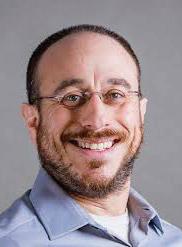
4. Become a Legacy donor. By joining the Jewish Education Legacy Society of Valley Beit Midrash you will ensure VBM has the ability to provide engaging learning opportunities and save lives in our communities for many years to come.
4. Become a Legacy donor. By joining the Jewish Education Legacy Society of Valley Beit Midrash you will ensure VBM has the ability to provide engaging learning opportunities and save lives in our communities for many years to come.
4. Become a Legacy donor. By joining the Jewish Education Legacy Society of Valley Beit Midrash you will ensure VBM has the ability to provide engaging learning opportunities and save lives in our communities for many years to come.
IN-PERSON IN MILWAUKEE & VIRTUAL
We hope this year will be a time of renewal and growth and that we will experience many joyful moments together in the year ahead.

4. Become a Legacy donor. By joining the Jewish Education Legacy Society of Valley Beit Midrash you will ensure VBM has the ability to provide engaging learning opportunities and save lives in our communities for many years to come. We hope this year will be a time of renewal and growth and that we will experience many joyful moments together in the year ahead.
IN-PERSON & VIRTUAL The Shabbat E ect: Jewish



Going Out with Knots: My Two Kaddish Years with Hebrew Poetry.”
Rabbi Dr. Wendy Zierler
Thursday, March 26, 2026 @ 1:00 pm PT
We hope this year will be a time of renewal and growth and that we will experience many joyful moments together in the year ahead.


We hope this year will be a time of renewal and growth and that we will experience many joyful moments together in the year ahead.
We hope this year will be a time of renewal and growth and that we will experience many joyful moments together in the year ahead.





“The Power of Song: Lifting Our Voices in Praise and Protest”
We hope this year will be a time of renewal and growth and that we will experience many joyful moments together in the year ahead.
Rabbi Moishe Steigmann & Rabbi Dr. Shmuly Yanklowitz









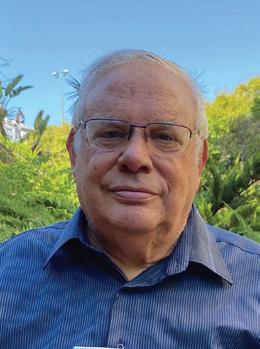
Holocaust Testimony Reimagined
Bible and Rabbinic Literature
Professor Beth Berkowitz

Thursday, January 22, 2026 6:00 pm CT






Thursday, February 26, 2026 @ 1:00 pm MT



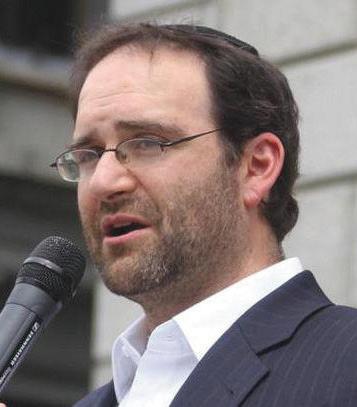





We hope this year will be a time of renewal and growth and that we will experience many joyful moments together in the year ahead.
We hope this year will be a time of renewal and growth and that we will experience many joyful moments together in the year ahead.
IN-PERSON IN PHOENIX & VIRTUAL Praying about the Unspeakable: Liturgy and Ritual as Response to Crisis

The Sacred Struggle: Jewish Responses to Trauma
Rabbi Benjamin David




Thursday, March 5, 2026 @ 1:00 pm MT
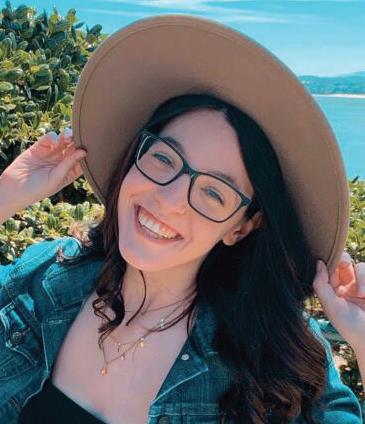







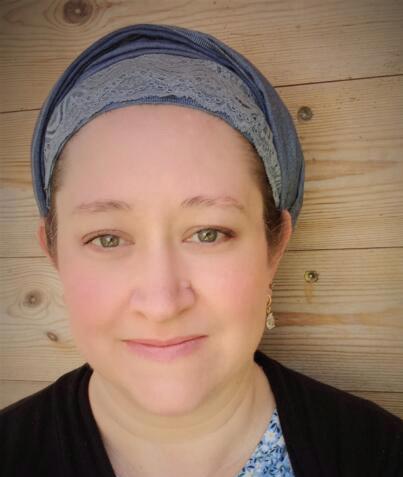



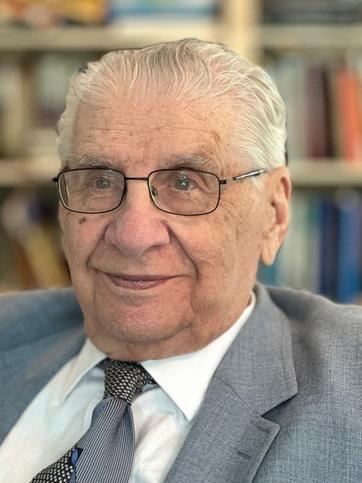
Four Views of the David and Bathsheba Story
Rabbi Jack Riemer
Thursday, March 12, 2026 @ 1:00 pm PT






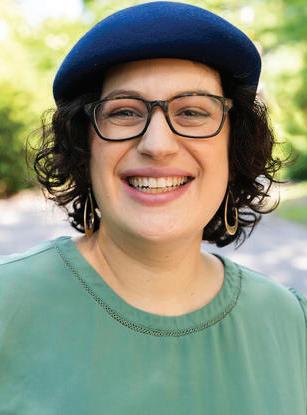
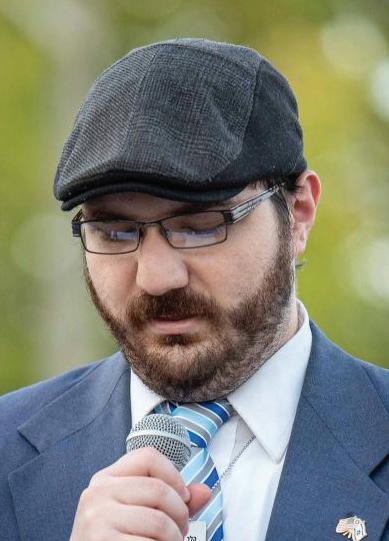
Torah, Tarot, and Trickery: Judaism’s Take on Magic and Divination
Rabbi Steven Gotlib
Thursday, March 19, 2026 @ 1:00 pm PT
Martin Herskovitz
Thursday, Aprl 16, 2026 @ 10;00 am PT






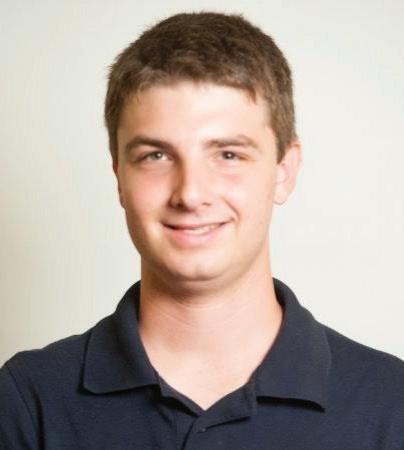




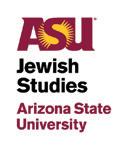





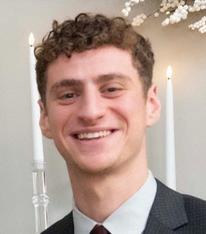
Sara Tropper

Forging White Heat: A PostOctober 7 Haiku Journey



Thursday, April 23, 2026 @ 10:00 am PT






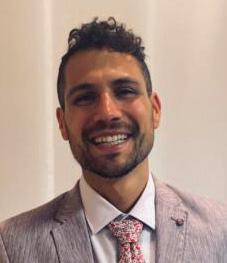


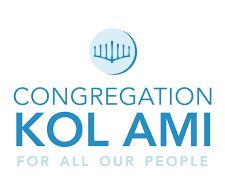









Striving to Be Human
Rabbi Leah Cohen Tenenbaum & Rabbi Douglas Kohn
Thursday, May 7, 2026 @ 1:00 pm PT
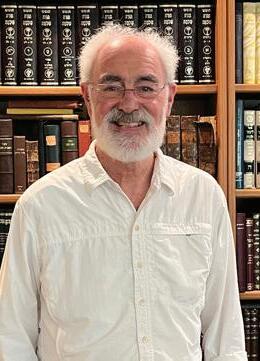

Primacies: Experience, Expression and the Jewish Imagination
Michael Fishbane
Thursday, May 14, 2026 @ 1:00 pm PT

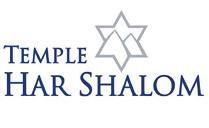
GRACE GILSON | JTA AND SHANNON LEVITT | STAFF WRITER
American Jews are installing security systems and buying guns in large numbers, according to survey data released two years after the attack on Israel on Oct. 7, 2023.
The Anti-Defamation League (ADL) and Jewish Federations of North America (JFNA) organized surveys to get a glimpse of the reactions of American Jews on the eve of the second anniversary of the attack.
Close to 20% of American Jews say they were the victim of an assault, threat or verbal harassment due to their Jewish identity over the last year.
That number is lower than a similar survey taken a year ago by the American Jewish Committee, which found that a third of U.S. Jews had directly experienced antisemitism in the previous year.
However, the more recent data adds a new wrinkle in the way many of those reporting antisemitism have changed their response.
A third of American Jews reported to surveyors that they had discussed with others how to plan for a “worst-case scenario,” with 14% developing a plan to flee the country, 13% installing new security systems and 9% purchasing a gun.
Among those who had been assaulted, threatened or harassed directly, those proportions were higher.
Those numbers did not surprise Talli Dippold, the executive director of the Hilton Family Holocaust Education Center.
“Tension right now is very high. We’ve had incidents of real violence against Jews in this country, so there is a heightened sense of alarm and awareness. Some of this comes from a history of trauma, and our understanding that the history of violence towards Jews is real and that we’re in a heightened moment right now. It’s a natu-
ral response at these times for individuals to be very concerned,” she said.
Jewish Community Relations Council (JCRC) of Greater Phoenix Executive Director Rabbi Mindie Snyder agreed.
“Each Jew today, as in ancient times, has the opportunity to respond to hatred when it presents itself. Yes, there are those who have been afraid and they have responded to the very real threat in the interest of their safety. This is not an unusual reaction for anyone in similar circumstances,” Snyder said.
The ADL and JFNA surveys mark the first public data point supporting anecdotal evidence that some Jews have taken up arms in the wake of Oct. 7. Gun ownership among congregants has surged so much that Jewish security experts have urged synagogues to impose stronger regulations.
Referring to the fatal attack on a Manchester, England synagogue on Yom Kippur, Dippold said even an international incident like that “hits close to home.”
“Local communities are very vigilant. Every community that I’m aware of is very vigilant,” she said. “If people feel that being armed helps them feel safer, then at moments like this, every family has to figure out what’s going to make them feel safe.”
“It is so profoundly sad that Jewish Americans are now discussing worst-case scenarios,” said Jonathan Greenblatt, the CEO and national director of the ADL, in a statement. “When American Jews — who have built lives, careers and families here for generations — are making contingency plans to flee, we must recognize this as a five-alarm fire for our entire country. This is not just a Jewish problem; it’s an American problem that demands immediate action from leaders at every level.”
The analysis is based on two surveys
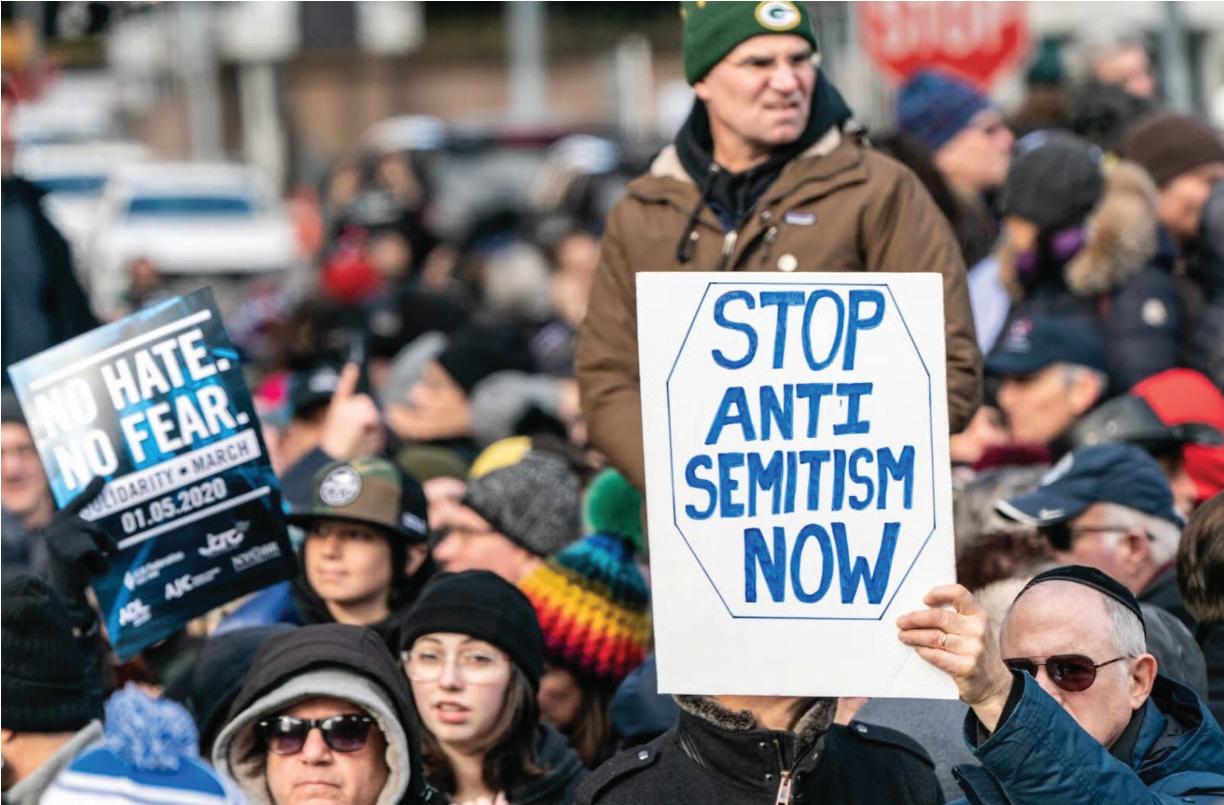
taken independently earlier this year.
An ADL survey sampled 2,982 Jewish American registered voters between May 27 and July 6. The JFNA survey included 1,877 Jewish Americans between March 5 and March 25. The margin of error for the ADL survey ranged for each question, but maxed out at 3.2 percentage points, according to a spokesperson.
The analysis also found a marked decline in the proportion of U.S. Jews who feel certain of “non-Jewish support in fighting antisemitism” — though half of U.S. Jews say they remain sure of that support.
“When antisemitism is on the rise, it also means that other hatreds are on the rise. So, it’s important that during times of rising antisemitism we reach out to our allies and make sure that we understand their needs, while also taking care of our own needs,” Dippold said. “There’s power in community.”
She is also a big believer in the power of education as the only thing “that’s been proven over time to really work.”
Snyder emphasized the importance of relationship building as part of the solution

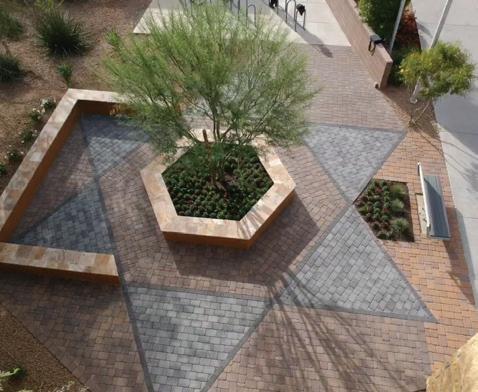


and added that over the last two years, she has seen “extraordinary acts of courage and commitment.”
Snyder is relatively new to leading the JCRC and said the organization “is in the process of dynamically reshaping the status quo; prioritizing, nurturing and strengthening relationships in everything we do. These timeless endeavors are invaluable right now. Moreover, they serve as a potent antidote to the toxin of hatred.”
While 57% of Jews said they believe that antisemitism is now a normal Jewish experience, the analysis also found that over half of Jews who had directly experienced antisemitic harm are more likely to still seek out increased engagement with Jewish life.
After attending a recent conference in Pittsburgh, the city where the largest attack on an American synagogue took the lives of 11 people in 2018, Dippold said she felt hopeful.
“The Jewish community in Pittsburgh is remarkable and shows us that out of some of the darkest tragedies, also comes a lot of light and a lot of initiatives that really do move the needle forward,” she said. JN














JEROD MACDONALD-EVOY | ARIZONA MIRROR
APolitico article about a leaked group chat of Young Republican leaders from across the country making racist, homophobic and misogynistic comments includes two people from Arizona, one of whom has documented ties to the white nationalist groyper movement.
The group chat of top officials in Young Republican Federation chapters from across the country, dubbed “RESTOREYR,” was leaked to Politico, which reported on a litany of comments made by participants. Offensive comments included making racist remarks about Black people, talking about putting Democrats in gas chambers, forcibly raping their enemies and more. The chat includes more than 250 slurs and one person saying “I love Hitler,” according to Politico.
One of the members of the chat was Arizona Young Republican Chairman Luke Mosiman, 24, who was alleged to have made racially charged comments about Black people and even floated an idea of linking their opponents in an election over control of the Young Republican National Federation to white supremacist groups — before saying it could backfire because it could result in the Young Republicans they needed to win the elections instead backing their opponent.
The Young Republican National Federation released a statement following the Politico report condemning the comments and calling for those involved
to resign “from all positions within their state and local Young Republican organizations.”
In Kansas, the chairman of the state’s Republican Party announced that their Young Republicans chapter, which was involved in the chat leaks, was shut down. And the Arizona Republican Party came out strongly against the “disturbing language” used by Young Republican leaders in a statement released shortly after the story was published Tuesday, Oct. 14.
But Mosiman and the Arizona Young Republicans resisted the call that he and Rachel Hope, whose comments in the group chat were also mentioned in Politico’s story, resign. In a written statement released late Wednesday, Oct. 15, the group instead cast Mosiman and Hope, who is the organization’s events chair, as victims, saying they “firmly reject any involvement in the ongoing political witch hunt targeting fellow Young Republican members.”
Their statement called it “disheartening” to “witness the double standard” displayed by their opponents within the conservative movement. They also lashed out at critics, saying some have failed to condemn violent texts by Virginia Democratic Attorney General candidate Jay Jones or social media posts celebrating the death of conservative influencer Charlie Kirk, who was killed last month.
However, the group did condemn “Nazi ideology,” though its statement fell
short of acknowledging what was said or apologizing for it.
“We express our sincere regret and unequivocally condemn any rhetoric that could be interpreted as sympathetic to Nazi ideology,” the statement says. The lengthy statement also says that the group has concerns over the way the messages were obtained and their validity.
Far-right provocateur Milo Yiannopoulos has claimed online, posting a sworn affidavit, that the chats were leaked by Gavin Wax, a staffer in Trump’s State Department who formerly led the New York Young Republican club, whose own problematic chats were revealed in 2023.
Mosiman has been viewed by some as a rising star in Arizona conservative politics, but he also has close ties with the far-right and had courted controversy long before the group chat.
In April 2022, U.S. Rep. Paul Gosar was listed as a “special guest” at an event in Tempe scheduled for April 20, a date that is revered by white supremacists and neo-Nazis because it is Adolf Hitler’s birthday.
The event had been organized by the American Populist Union, a white nationalist group that is closely aligned with groypers, the name for a group of young, male white nationalists who strive for their ideas to become a part of the Republican mainstream and are largely followers of white nationalist
SEE CHAT, PAGE 8
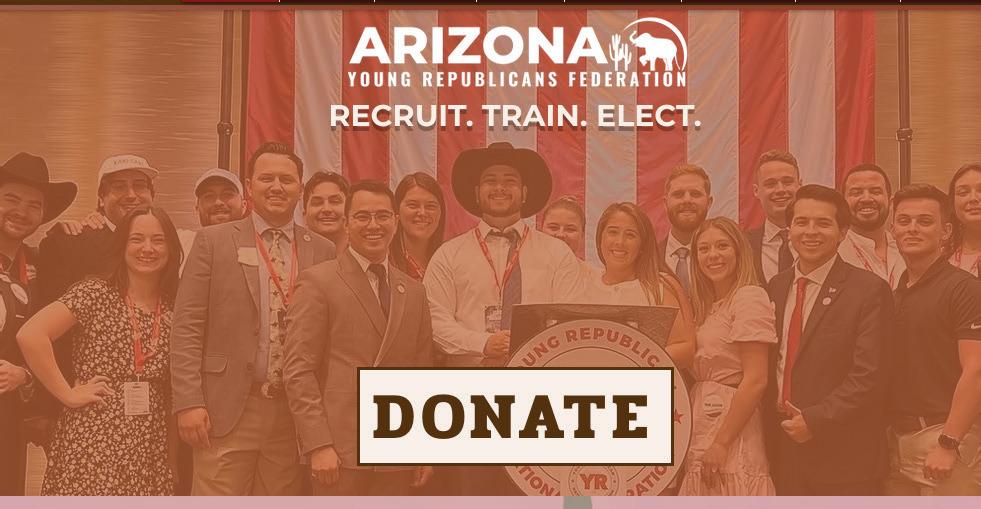
IF YOU O R SOMEONE YOU KNOW IS A VICTIM OF A BIAS CRIME, THE PHOENIX POLICE DEPARTMENT WANTS
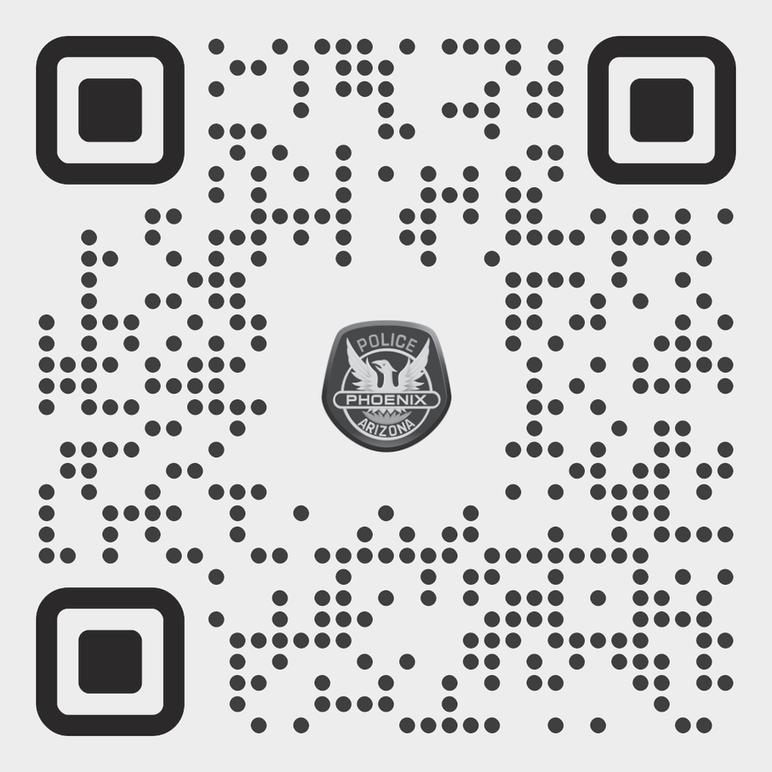



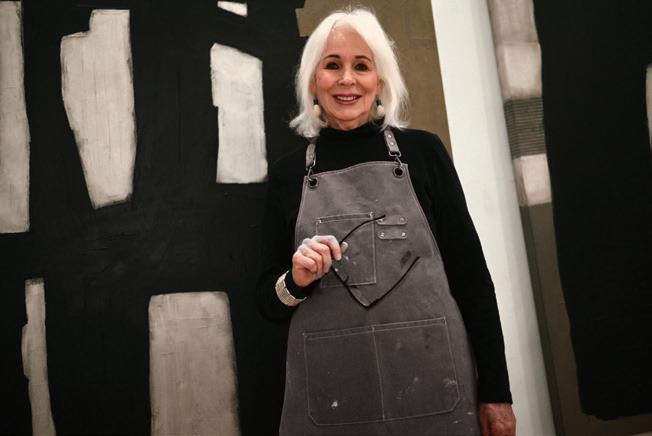
Nick Fuentes. In 2021, Gosar was the first elected official to speak at Fuentes’ America First Political Action Conference.
After the Mirror reported on Gosar’s promotion and anticipated attendance at the event and spurred national media coverage, Gosar pulled out. His office said he was never planning to attend, even though he promoted it on his social media accounts.



Mosiman attended, and was later featured in photos posted by APU and in videos celebrating APU. Mosiman also follows a number of accounts connected to the groyper movement on his X account.
“Like it or not, Nick Fuentes is becoming a force in the GOP, you all need to understand that,” Mosiman said in a March 2021 tweet. “Stop acting like it’s a few nut cases, it’s not. Ignoring it isn’t working.”
Mosiman went on to say that he wasn’t a Fuentes supporter but he had watched his “Afpac speech” and it “was not bad.”
In that 2021 AFPAC speech, Fuentes called the Jan. 6 insurrection, where seven people died, “lighthearted mischief” and stressed white nationalist talking points. Mosiman was also photographed



“WE EXPRESS OUR SINCERE REGRET AND UNEQUIVOCALLY CONDEMN ANY RHETORIC THAT COULD BE INTERPRETED AS SYMPATHETIC TO NAZI IDEOLOGY.”
in September 2021 protesting U.S. Sen. Mark Kelly by the groyper-aligned Arizona College Republicans United. The photograph was posted on Instagram with the caption “CRU executed a protest with Groypers against Senator Mark Kelly.”
Far-right YouTuber John Doyle, one of the featured speakers at the April 2022 APU event, organized a “Stop the Steal” rally in Michigan with Fuentes and has posted highly misogynistic content, such as saying that women shouldn’t be allowed to vote. Doyle, along with other members of APU, were also in attendance at the first 76Fest, which one of its organizers dubbed “Hitler Youth, without the Hitler.”
Mosiman also promoted an event in December 2021 that he called “one of the most based events of the year” which was being put on by Republicans for National Renewal, which has ties to ethno-nationalism, and co-hosted by APU.
That event brought local politicians face to face with a host of far-right extremists, including a number of prominent groypers.
APU has denied ties to white nationalism or knowledge of the significance of the date of its 4/20 event.
But Mosiman’s involvement in Arizona politics goes beyond the groyper movement.
Online, Mosiman often interacted with many local politicians, and in recent years started coming to the defense of

conservative youth organization Turning Point USA.
“I used to be not a huge fan of TPUSA, but after seeing hard working and effective conservatives like (Austin Smith) and (Tyler Bowyer), I changed my mind,” Mosiman wrote on X in 2022, referring to two of the Arizona-based group’s leaders.
Both Smith and Bowyer are listed as members of the advisory team for the Arizona Young Republicans chapter that Mosiman leads. TPUSA did not respond to a request for comment for this story. Neither did Nancy Cottle, Republican state Rep. Matt Gress and GOP state Sen. Jake Hoffman, who were also listed as advisory board members.
The website for the Arizona Young Republicans went offline on Wednesday, Oct. 15, but archived snapshots were still online.
“Without a doubt, Turning Point Action had the most meaningful grassroots impact on Arizona,” Mosiman wrote on X on Nov. 11, 2024, shortly after last year’s election. “Hats off to (Tyler Bowyer) and his phenomenal staff.”
Bowyer is the Chief Operating Officer of Turning Point Action, the political action arm of Turning Point USA.
TPUSA has long been a target of the groyper movement, but in recent years has seen itself move farther to the right and courting controversy for hiring racists. JN

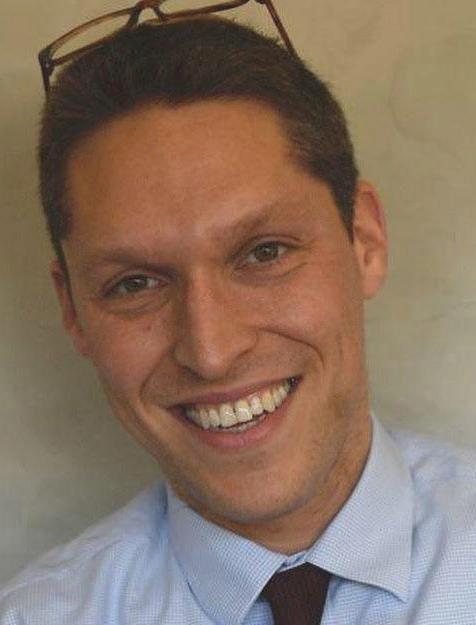
P6:9 - 11:32
arshah Noach is known for the story of Noah and the flood — but it later contains another of the most famous biblical stories, the Tower of Babel. Though it consists of only nine verses, the power of this story has caused it to be remembered for thousands of years. After the flood, when the world repopulates, humanity is able to exist seemingly in peace. The people of the world all speak one language, and they all migrate to one valley, in the Land of Shinar. There, they say: “Come, let us build us a city, and a tower with its top in the sky, to make a name for ourselves; else we shall be scattered all over the world.”
On its surface, this doesn’t seem so bad — the whole world working together with one common purpose. That sounds like a utopia, and the antithesis of so many of the challenges we face in our fractured and divided world today. A culture where
everyone understands one another? That sounds amazing. God, however, upon seeing the Migdal Bavel, takes issue and says (to the angels, presumably) that this project must be broken up and the people diversified.
If everyone thinks and acts in the exact same way, we risk limiting our individual and collective opportunities to contribute to the world, and perhaps worse, we run the danger of using the extraordinary powers that come with being human for improper purposes. In social psychology, this is known as “groupthink,” where people value conformity and societal harmony over critical thought.
The people in the Tower of Babel narrative could have used their resources and faculties to do amazing and necessary things. They could have eradicated poverty, built hospitals to care for the sick, established schools to expand the potential of all children, constructed places of prayer to express gratitude to God or founded senior-living centers to care for those who needed it. Instead, they seem to have used their unity to display power and demonstrate dominance. To simply build a tower to show power and dominance is perhaps the vainest of pursuits. The tower
was entirely purposeless except to build themselves up and flex their own muscles.
We can see the parallels in our society today. How much do we use our shared capabilities only to build higher towers of our own power, to enrich ourselves and express dominance? How much do we measure our national success not in alleviation of suffering, but in GDP? Might our society be punished for celebrating reckless growth and unchecked power? Rather than achieving a global redemption, we perpetuate a world of war, manmade climate disasters and oppression of workers. Rather than worshipping God, we worship growth.
A different read of the Migdal Bavel narrative, however, is to see it as saying that human sameness is not the ideal. Put another way, unity and sameness are not one and the same. The challenge is to on one hand be united, while on the other respecting our differences and allowing room for all views and pathways to enhance the world.
Maybe God does not want sameness, but rather for humanity to flourish through respect and cooperation as we navigate our many differences, be they religious, linguistic or cultural. God in
Genesis wanted us to proceed to the next level of progress, in which we honor human equality and commonality, seeing ourselves in others and others in ourselves, while also upholding human uniqueness, difference and variety. Here we are charged with holding in tension universalism and particularism.
Committing to the diversity of humanity does not mean checking our particularities at the door, but it does mean coming together with both like-minded people and those who may think differently. And, for many, that is very difficult. If we work together, though, within the parameters of our talents and purposes, rather than building a self-glorifying tower, we can draw heaven and Godliness down to earth — not to escape society toward the heavens, as the tower-builders tried to do, but to repair and enhance our earthly existence. JN
Rabbi Dr. Shmuly Yanklowitz is the president and dean of Valley Beit Midrash and the author of 30 books on Jewish ethics and spirituality.
‘Dialogue’ isn’t enough to fix what ails campuses. Jewish students like us need more.
ARI KOHN, MAYA ZIMMERMAN | JTA
The past two years have been particularly challenging for Jewish college students. Our campuses, which should be places of curiosity and critical exchange, have too often become arenas of polarization. As upperclassmen, Ari at Harvard and Maya at McGill, we have watched peers feel trapped between two extremes: to take a strident side on nuanced conflicts, or to stay silent and withdraw from the conversation altogether.
For students like us who care deeply about pluralism, this climate has felt especially isolating.
Barnard College President Laura Ann Rosenbury recently wrote an op-ed in the New York Times describing her college’s efforts to offer “courses and programs on civil discourse and dialogue.” While we’re heartened by this trend, we also recognize this isn’t the norm across universities and we’ve also come to see its limits.
What’s missing on campuses across the country are spaces where students learn to hold disagreement within a community.
Jewish life has always included debate, diversity and dialogue. The Talmud preserves arguments not for their resolution, but because the disagreements themselves are valuable.
What Jewish wisdom has helped us recognize is that the key to pluralism is prioritizing relationships over the need to be right.
Last school year, we each attempted the Sisyphean task of getting those who disagree on campus into one room, to no avail. It was exhausting. No matter how close we got to encouraging open conversations, at the last moment, a social media post, news event or protest would dissuade participants that such a conversation was desirable or even worthwhile.
What renewed our spirits and resolve was jointly participating in a program created
for Jewish college students called Campus Commons. The experience of being in a mixed group of Jewish students from across North America — politically and religiously — was inspiring and enlivening, creating a trusting community with peers who, back on our college campuses, circulate in different spheres from ours.
Being in a pluralistic Jewish community and studying Jewish texts together gave us the courage and self-awareness to examine our own personal barriers in conversation.
For the first time in a long time, we felt able to express pain without being dismissed or misunderstood.
College campuses have the potential to, once again, become spaces where students can cultivate meaningful relationships before diving into debate. This is especially true of Jewish spaces on campus which are in desperate need of a relationship reset. More resources should be given to trusted
campus professionals and peer leaders who can serve as relationship-builders on campus and are best positioned to foster pluralism in these environments. This includes Jewish professionals and Jewish student leaders, who are uniquely situated to cultivate pluralistic environments and initiatives.
We hope university administrators and community leaders will go beyond “dialogue skills,” giving students opportunities to deepen relationships and build community. Our participation in a Jewish program that exposed us to Jewish learning related to the values of pluralism, restored our hope that things can be different; we can act together without needing to think alike. JN
The views and opinions expressed in this article are those of the author and do not necessarily reflect the views of JTA or its parent company, 70 Faces Media.

DR. ADAM SABBATH | SPECIAL TO THE JEWISH NEWS

When most people think about protecting their heart, they picture exercise, nutrition and managing their weight. What doesn’t come to mind? The health of your teeth and gums. Published articles over the last few decades have shown there

Continuing the tradition of serving generations of our community since 1917. www.lebowitzdental.com
602-264-2905
is an important link between oral health and cardiovascular health.
This research has included population data, imaging, genetic testing and molecular pathways, which all show this is a connection worth paying attention to — and the good news is, there are simple steps you can take to improve your risk.
Why the mouth-heart connection matters
Your mouth is home to billions of bacteria. Most of them are there
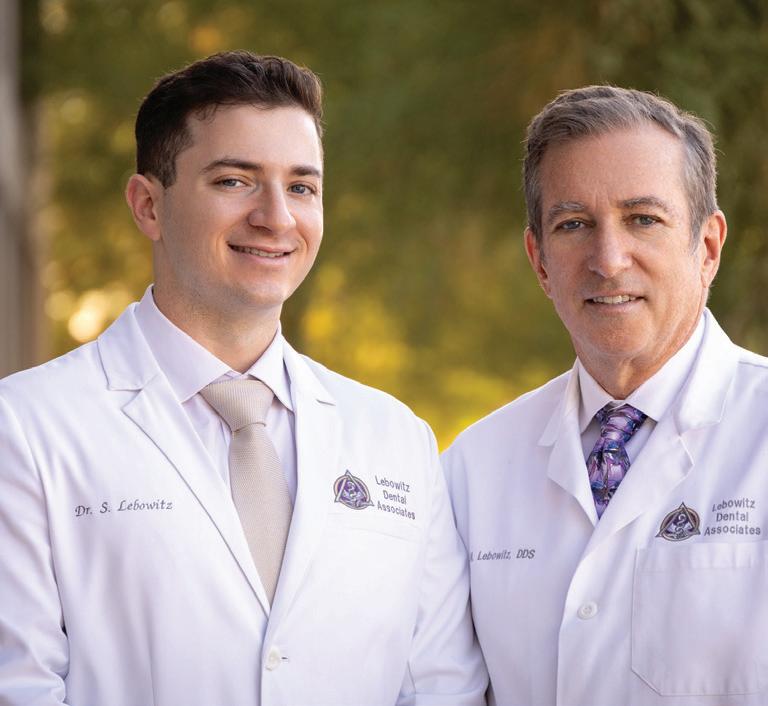

At our practice, we believe dentistry is about far more than fixing teeth. It’s about trust, comfort and relationships that span lifetimes. For many of our patients, dental visits have become a family tradition — parents who once sat in our chairs as children now bring their own kids and even grandchildren. That sense of continuity and connection is at the heart of what we do.
Our philosophy is simple: patients always come first. We view our role as that of a healthcare fiduciary, meaning we put each patient’s best interests at the center of every decision. That means not just treating today’s concern but also planning for tomorrow’s health.
We know our patients count on us to deliver the best possible care, and that means always learning and growing. Our team stays at the forefront of dentistry by evaluating emerging technologies in collaboration with leading companies and by sharing knowledge at professional lectures and conferences across the country.
This commitment to lifelong learning ensures that the care we provide is not only compassionate but also guided by the most advanced, proven techniques available.
But while the tools we use will keep evolving, our philosophy will not. For us, dentistry has always been — and always will be — about people first. It’s about treating patients as family, caring for multiple generations, and building relationships that stand the test of time.
That’s the culture of our practice: where patients aren’t just treated, they’re cared for with trust, compassion and a connection that lasts across generations.
to help us digest food, prevent the accumulation of harmful bacteria and are part of our immune protection. But when plaque builds up along the gumline, it creates a breeding ground for unhealthy bacteria that cause gum disease (also called periodontal disease). This can cause infection and lead to systemic inflammation.
When gums become inflamed or infected, that inflammation and unhealthy bacteria don’t stay put. Chronic inflammation leads to a chain reaction of inflammation that contributes to the buildup of fatty deposits (plaque) inside the arteries, raising the risk for heart attack, stroke and other cardiovascular problems. Unhealthy bacteria can gain access to the blood stream and cause heart valve infections called endocarditis. Patients with a prior heart valve infection or valve surgery are especially vulnerable to this form of infection.
There is an association between how someone cares for themselves and the risk of heart disease. Your body weight, waist size, blood pressure, exercise routine and nutrition heavily contribute to your cardiovascular health. The interesting discussion is that studies suggest, even when taking these differences between

patients into account, those with gum disease are more likely to develop heart disease. So, while we don’t say gum disease causes heart disease outright, we do know that the two are closely linked — and that caring for your mouth is another way of caring for your heart.
Inflammation: The common thread
The body reacts to gum disease the same way it reacts to any infection: with inflammation.
That’s useful in the short term, but harmful if it lingers.
With constant signals to fight infection the inflammatory signals become stressful and damaging to the arteries of the body. This is similar to the effects of high blood pressure, high cholesterol and diabetes — conditions we know are risk factors for heart disease. Chronic inflammation leads to dysfunction of the lining of the arteries of the body which leads to the development of atherogenesis — the buildup of blockages.








That’s why dentists and cardiologists alike encourage patients not to ignore bleeding gums, loose teeth or chronic bad breath. These can be early signs of gum disease that deserve attention.










































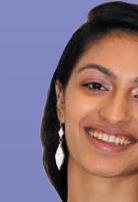




























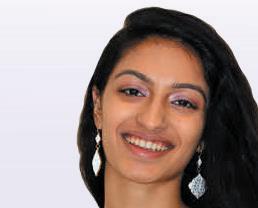


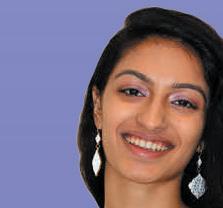









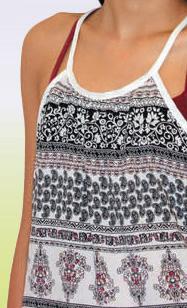

















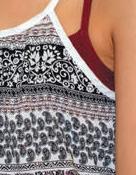









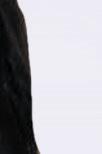






































































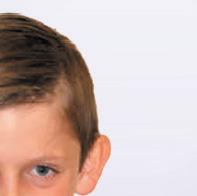































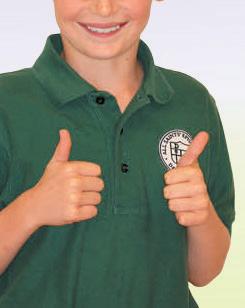













MALA BLOMQUIST | MANAGING EDITOR
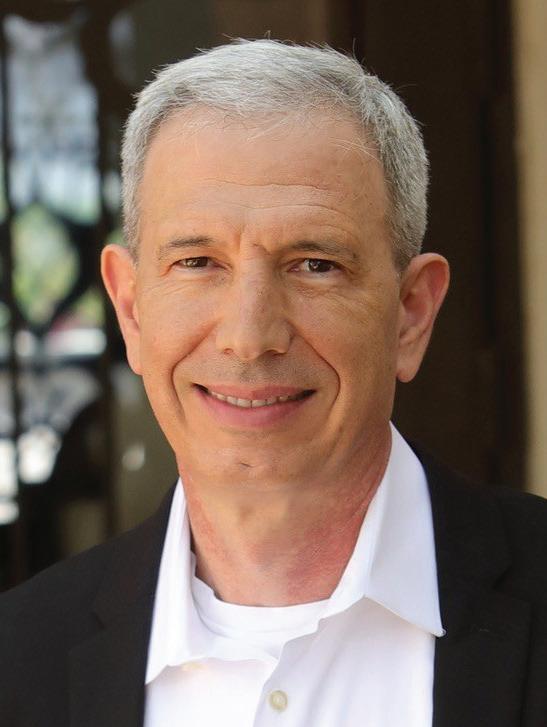
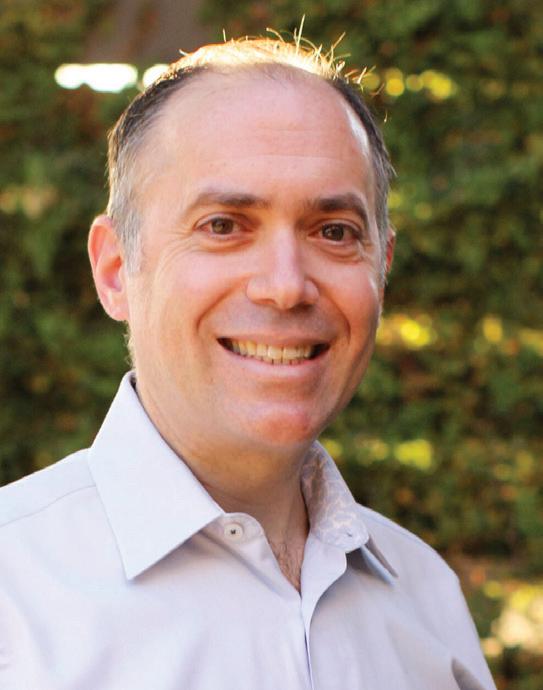
For many people, a trip to the dentist can evoke a sense of apprehension, ranging from mild discomfort to a fullblown anxiety attack. Several local dental and orthodontic specialists are redefining the experience, blending compassion, technology and personalized care to ensure that each visit is as comfortable as it is effective. We asked Jewish dentists in the Valley about how they help patients overcome fear, the innovations transforming their field and their vision for the future of dentistry.
Dr. Michael Feinberg of Affiliated Pediatric Dentistry & Orthodontics in Scottsdale shared the foundation of any dental practice is trust. “Our goal is for our patients to establish a dental ‘home’ in our practice,” he said. “We take time — sometimes even an extra appointment or two — to get to know each other, gain trust and eventually work together to make them successful. Once anxious patients develop comfort with our office, they usually become the best patients.” Feinberg’s philosophy extends beyond routine care. “Every patient is unique and needs a unique approach to developing a strong patient-doctor relationship,” he said. “Honesty and trust are paramount. Patients need to feel confident that any diagnosis or treatment plan is given with the best decision-making and intention. A mentor once told me that the ‘DR’ in front of our names stands for ‘Do Right.’ Our responsibility as healthcare providers is to always do right by our patients.”
Drs. Michael and Steven Lebowitz of Lebowitz Dental Associates in Phoenix described their practice as an intergenerational experience. “At our practice, dentistry is about far more than fixing teeth,” said Dr. Michael Lebowitz. “It’s about trust, comfort and relationships that span lifetimes. Many of our patients bring their children and even grandchildren now, building a sense of continuity that’s at the heart of what we do.”
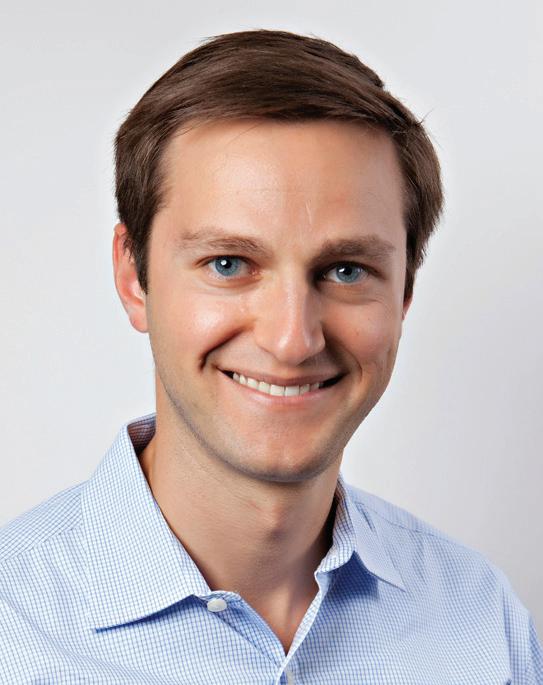
For Dr. Shalom Fialkoff of Paradise Valley Dental, establishing trust begins with attentive listening. “Many people feel nervous because of a past difficult experience, worry about pain or simply not knowing what to expect,” he said.
“The first thing we do is listen. Every patient’s story is different, and taking the time to understand their concerns makes all the difference.”
Dr. Alyssa Levin of North Valley Orthodontics, with locations in Phoenix and Scottsdale, shared her approach: “We always explain what we are going to be doing before we start. To ease fear, we first have to build trust,” she said. “Most often the techniques we use depend on individual needs. Some patients like to see what we’re doing; others prefer distraction. Some may even come for a ‘get to know you’ visit before I even look in their mouth.”
Many dentists introduce creative strategies to ease nervous patients.
“Our office is home to emotional-support dogs who bring calm and joy to the experience,” said Lebowitz. “A wagging tail or gentle nuzzle can melt away stress.
Combined with a cheerful, welcoming office atmosphere, these small details make a big difference in creating a place where patients feel safe.”
Fialkoff highlighted the role of modern sedation techniques: “For patients who need extra support, we offer solutions like nitrous oxide, short-term medication to ease anxiety or full sedation with a dental anesthesiologist when it’s the best option,” he said. “My goal is always to replace fear with trust so that patients feel safe, cared for and confident.”
In her orthodontic practice, Levin emphasized a personal approach. “For some patients, we use mirrors so they can see what we are doing. Others may prefer to watch a favorite movie or listen to music,” she said. “It’s always so gratifying to help a nervous patient overcome
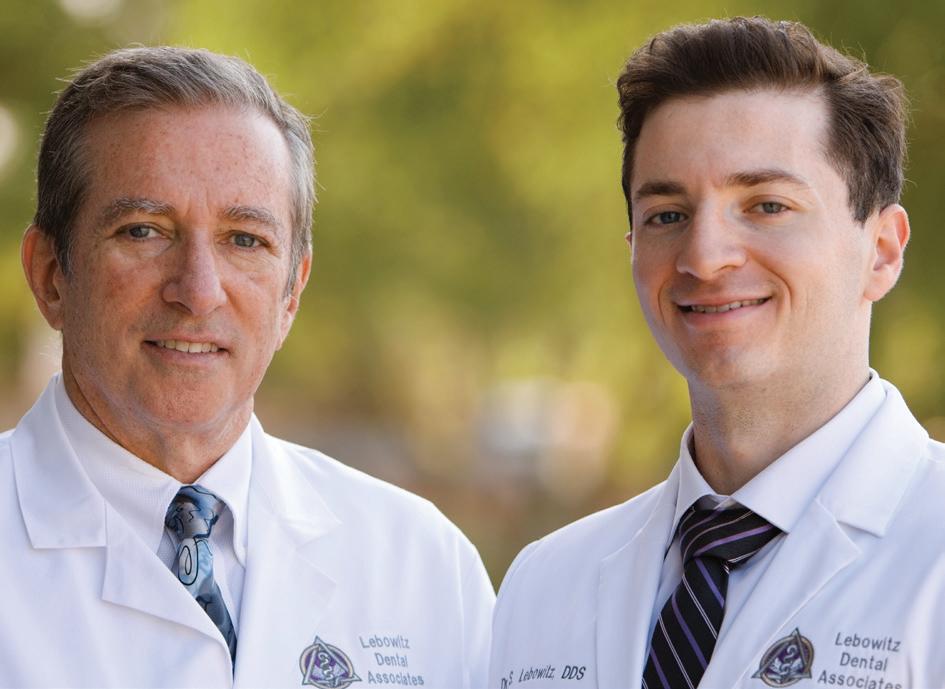
their fear.”
New technology can also help to ease fears by improving accuracy, comfort and efficiency.
Feinberg believes 3D scanning is a revolutionary tool. “When I started my orthodontic residency 25 years ago, 3D scanning was just an idea,” he said. “Now we use it daily to generate treatment plans, design aligners and wires for our orthodontic patients and fabricate retainers without taking goopy impressions.”
Lebowitz agreed, “3D CT imaging gives us detailed insights into teeth, bone and airway structures, leading to more accurate diagnoses,” he said. He also mentioned that advanced digital scanning and milling enables crowns and restorations to be delivered often in one appointment. And AI is a powerful tool for analyzing dental images, playing a role in restoration design and disease prevention.
For Fialkoff, intraoral scanners, microscopes and navigation systems are key advancements. “These tools don’t just make treatment better — they give patients peace of mind,” he said.
For Levin, digital treatment planning and 3D-printed custom braces have transformed orthodontics. “About three years ago, I made the move to adopt 3D-printed custom braces,” she said. “I will never look back.”
Dr. Shawn Bader of Faces Orthodontics, with offices in Scottsdale and Peoria, said that even aesthetic options have evolved. “We can now place braces on the back of teeth so no one will know they’re there,” he said. “Digital scanners, 3D imaging and clear aligner systems have made treatment faster, more comfortable and more precise than ever.”
Ongoing education is key to implementing new technologies and Feinberg, a self-proclaimed “continuing education junkie,” participates in national, regional and local dental association meetings and events. “While I don’t like being the first
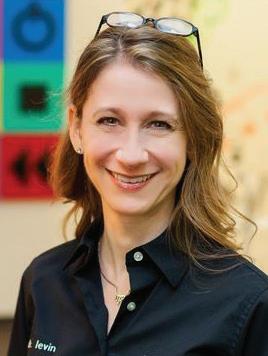
to try a new technique, it’s important to remain open-minded to change,” he said. “We owe it to our patients to make decisions with the most information available.”
Levin shared a similar approach, volunteering and attending webinars and events. “I’m general chair of the Western Orthodontic Conference, a three-day regional meeting with over 1,000 doctors and staff,” she said.
Lebowitz said his team stays at the forefront of dentistry by evaluating emerging technologies in collaboration with leading companies and by sharing knowledge at professional lectures and conferences across the country.
“Lifelong learning ensures that the care we provide is not only compassionate, but also guided by the most advanced, proven techniques available,” he said.
All the professionals agreed that technology will continue to transform dentistry — but human connection remains essential.
Fialkoff sees robotics, AI and regenerative therapies as the next frontier. He looks forward to seeing microbiome replacement therapies, robotics in routine procedures, AI-driven diagnostics and even tooth and bone regeneration.
“No matter how much the tools change, the heart of dentistry will remain the same: trust and relationships,” he said.
Lebowitz shared that the future promises to be both high-tech and deeply personal. “For us, dentistry is, and will always be, about putting the patients first and caring for families across generations.”
“Looking ahead, the future of dentistry is incredibly promising,” said Bader. “But most importantly, the human element — compassion, trust and care — will always remain at the heart of what we do.” JN
For more information, visit Dr. Michael Feinberg at smilesbyapdo.com; Drs. Michael and Steven Lebowitz at lebowitzdental.com; Dr. Shalom Fialkoff at paradisevalleydental.com; Dr. Alyssa Levin at northvalleysmiles.com; and Dr. Shawn Bader at facesorthodontics.com.

For more than five decades, Delta Dental of Arizona has been a trusted partner in promoting healthy smiles across the state. Today, the organization is committed to supporting whole-person health through comprehensive dental and vision benefits. As a trusted provider for employers, families, and individuals across the state, the company offers plans that go beyond coverage—focusing on care, prevention, and long-term wellness.
Oral health and overall wellness are deeply intertwined; a healthy mouth can improve digestion, sleep quality, and even mental health. That’s why Delta Dental of Arizona offers dental plans designed to promote preventive care and provide access to high-quality services.
The Free Until Three™ benefit provides coverage at no cost for dependents under the age of three. This signature program is designed to encourage parents to prioritize early dental visits and preventive care, helping children establish healthy dental habits from the very start. By supporting families during these critical early years, Delta Dental of Arizona promotes lifelong oral health and wellness.
Delta Dental of Arizona offers orthodontia coverage through select dental group plans, including benefits for braces, clear aligners, retainers, and more, helping members achieve healthier, more confident smiles. With the introduction of the new Palo Verde plan, access to orthodontic care has expanded to include individuals and families, making it an excellent option for anyone seeking comprehensive dental coverage that supports both oral health and overall wellness.
The Special Health Care Needs Dental Benefit is offered with most dental plans to individuals who may face barriers to traditional dental care. It’s designed to ensure every patient receives personalized, compassionate care in a supportive setting and includes:
• Additional dental visits to help patients and caregivers become comfortable with the environment.
• Up to four cleanings per year.
• Extended chair time for those requiring sensory or behavioral accommodations.
• Coverage for necessary anesthesia, up to four units, when required to complete treatment.
Oral health is about more than cleanings—it’s about prevention. Sports-related dental injuries can lead to long-term issues like jaw pain
and speech problems. The Delta Dental Athletic Mouth Guard offers twice the impact absorption of traditional models and a remoldable, braces-friendly fit. It helps athletes stay protected, comfortable, and focused, supporting both oral health and overall wellness.
Since 2007, Delta Dental of Arizona has also offered statewide vision benefits through DeltaVision®, administered by EyeMed Vision Care. This valuable coverage allows employers, families, and individuals to conveniently bundle dental and vision insurance with one trusted provider, making it easier to manage care and support overall wellness.
Vision care plays a vital role in detecting broader health issues, and Delta Dental of Arizona’s plans are designed to promote preventive care through flexible, innovative benefits. For example, the Free Until Three™ program, available on individual and family plans, provides nocost coverage for dependents under age three, encouraging early eye exams and healthy vision habits.
For group plans, the One & Sun™ add-on rewards members who complete their annual eye exam with a pair of non-prescription sunglasses from brands like Ray-Ban® or Oakley®. It’s a fun, stylish way to promote preventive care and protect long-term eye health.
At Delta Dental of Arizona, caring for overall wellness means looking beyond just eyes and teeth. The organization helps Arizonans live happier, healthier lives by making it easier to access the care they need. As a not-for-profit dental and vision service organization, Delta Dental of Arizona is committed to creating a path to better health and wellness for everyone it serves.
That commitment starts with coverage designed around convenience and connection. With a strong network across Arizona and nationwide, members can count on quality care wherever they are. Bundling dental and vision plans makes preventive care simple and affordable, empowering members to take small steps that lead to lifelong health. Whether it’s a small business seeking affordable benefits, a large employer designing a tailored plan, or an individual looking for quality coverage, Delta Dental of Arizona offers flexible options to meet every need.
By living its values of collaboration, care, inclusion, integrity, and service, Delta Dental of Arizona goes beyond coverage—creating healthier lives and stronger communities.
To learn more about Delta Dental of Arizona, visit www. deltadentalaz.com.

Whole person health is gaining traction across Arizona as residents recognize the role oral health plays in overall wellbeing. Findings from the 2025 Delta Dental of Arizona “Examining Oral Health and Wellness” report show that awareness of the connection between oral, mental, and physical health is stronger than ever and is translating into action.
At Delta Dental of Arizona, the mission is clear. Caring for the mouth is caring for the body. The organization focuses on preventive care and encourages Arizonans to see how oral health affects total well-being. With the right support, education, and access, communities can take meaningful steps toward healthier lives.
These insights guide policy, community investment, and clinical practice statewide.
Adults statewide recognize that oral health affects more than teeth and gums. Ninety-two percent of Arizonans agree that caring for their teeth boosts confidence, and 77 percent see a clear link between oral health and mental health.
Awareness is high across generations yet cost still blocks consistent care. While 83 percent of residents acknowledge that good oral health helps protect against chronic conditions, nearly half delay or avoid dental visits because of financial barriers.
Consequences are real, especially for the 68 percent of older adults in Arizona living with at least one chronic illness. Dental neglect can worsen heart disease and diabetes, reinforcing the importance of regular care even when no symptoms are present. Only 39 percent of those who are or have been pregnant know that gum disease may be linked to complications such as preterm birth and low birth weight. Among parents, 74 percent report their children’s oral health could be better, and many struggle to keep kids brushing consistently. As a result, cavities remain common in childhood.
Preventive habits are common, but consistency varies. Most adults brush twice daily and attend routine exams, yet only 61 percent replace a toothbrush every three months as recommended by the American Dental Association. Awareness of virtual dental consultations is rising, especially among younger adults who value convenience.
Older adults are more likely to skip preventive visits because they feel their oral health is adequate, while younger generations cite cost as the main barrier.
These findings reveal both opportunity and responsibility. As more Arizonans understand the connection between oral and whole-body health, the focus turns to ensuring that all people, regardless of income, location, or background, can access the care they need. Delta Dental of Arizona is working to remove barriers through partnerships, investments, and community programs that provide preventive care and education statewide.
Everyone deserves access to quality dental care that supports lifelong health, yet many still face obstacles because of cost or limited availability. Delta Dental of Arizona helps bridge that gap by funding programs that make prevention, screenings, and education accessible to individuals and families in every county.
Among these initiatives:
• Native Health’s Dental Outreach Program delivers mobile services and culturally tailored education to Indigenous communities in Maricopa County. Through screenings, fluoride treatments, and community-based instruction, the program ensures that preventive care reaches those who need it most.
• Polara Health’s Promoting Oral Health Through Integrated Healthcare Services in Yavapai County merges dental screenings with behavioral and primary care visits. Patients receiving mental health or medical support also receive oral health assessments and referrals.
• Sun Life Family Health Center’s Oral Health Screening and Fluoride Program in Pinal County brings preventive care to schools and community centers. Children receive screenings, fluoride applications, and dental hygiene education, and families are connected to follow up care.
Together, these programs reflect Delta Dental of Arizona’s commitment to advancing health equity, expanding education, and strengthening the relationship between oral health and overall wellness.
The 2025 report shows that Arizonans understand that strong oral health supports strong bodies and minds. Yet cost and access remain challenges that require collaboration among health organizations, policymakers, and community partners. By empowering people with education, access, and preventive resources, Arizona can build a future in which every resident enjoys the confidence and well-being that come from a healthy smile and a healthy life.
Michael Jones is president and chief executive officer of Delta Dental of Arizona, which provides affordable dental and vision benefits to individuals, families, and businesses statewide. He also serves as president and chairman of the Delta Dental of Arizona Foundation.
Shared risk factors
Another reason oral health and heart health are linked is that they share many of the same risk factors. Smoking, poor nutrition, uncontrolled diabetes and chronic stress can all damage both your teeth and your cardiovascular system.
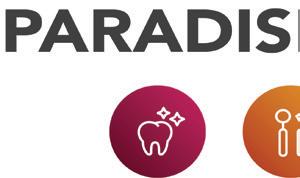

What you can do today
The encouraging news is that small, consistent habits can make a big difference. Here are a few ways to protect both your smile and your heart:
• Brush and floss daily. Aim for at least two minutes of brushing twice a day and flossing once a day. This prevents plaque from hardening into tartar, which only a dentist can remove.
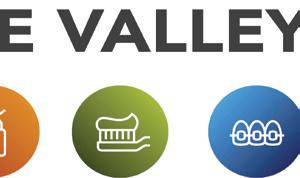
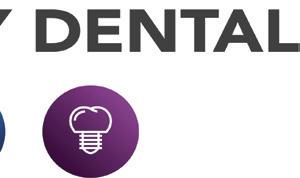
a New Standard in Dental Care at Paradise Valley Dental
• See your dentist regularly. Professional cleanings and checkups catch problems early and prevent gum disease from progressing.
• Pay attention to symptoms. Swollen, tender or bleeding gums aren’t normal. If you notice these changes, don’t ignore them — schedule a dental appointment.
• Adopt heart-healthy habits. Quit smoking, consider a Mediterranean diet, stay active with a goal of 180 minutes of aerobic activity weekly and keep up with regular medical checkups.
• Keep your care team connected. Let your dentist know about your heart history and let your cardiologist know if you’re dealing with gum disease. Team-based care matters.
Looking at the whole person
One of the things I appreciate most about practicing at HonorHealth is the focus on seeing the whole person, not just one part of the body. Heart health does not exist in isolation. The heart,
brain, body and mouth are part of one interconnected system. Your dentist, your primary care provider and your cardiologist all play a role in helping you live longer, healthier and with more confidence.
Taking care of your teeth and gums might not sound like heart medicine, but it is. Every time you brush, floss and sit in that dental chair, you’re not only protecting your smile — you are also supporting your cardiovascular health.
As a cardiologist, I encourage my patients to think of oral health as part of their heart-healthy routine. It’s another reminder that small daily choices can add up to big protection for the body’s most important muscle. JN
Adam Sabbath, M.D., is a general cardiologist, associate program director of the HonorHealth Cardiovascular Disease Fellowship and an associate professor of clinical practice at ASU School of Medicine and Advanced Medical Engineering. Sabbath has lived in Phoenix with his family since 2008, after graduating from the University of Arizona Cardiology Fellowship.
At Faces Orthodontics PLLC, we believe every smile tells a story—and we’re here to make yours shine. Leading our practice is Dr. Shawn M. Bader, DDS, MS, a board-certified orthodontist with a passion for helping both children and adults achieve healthy, confident smiles.
Dr. Bader earned his dental degree from the University of Toronto before completing his Orthodontics Certificate and Master’s degree at the University of Kentucky. With more than two decades of experience, he combines advanced training with a caring, personal approach to orthodontic treatment.
As a father of two boys and a former youth sports coach, Dr. Bader understands the importance of respect and encouragement, especially when working with younger patients. He recommends an initial orthodontic evaluation around age 8, when potential issues can be identified early and treatment can be carefully planned. For adults, it’s never too late to improve your smile—Dr. Bader and his team o er a full range of orthodontic solutions, from traditional braces to discreet clear aligners.
Dr. Bader is proud to be Board Certified by the American Board of Orthodontics and remains active in professional study clubs, ensuring that his patients benefit from the latest advancements in orthodontic care. His philosophy is simple yet powerful: treat every patient like family, providing the highest level of care in a warm and welcoming environment.
When he’s not in the o ce, Dr. Bader enjoys family time with his wife, Sharon, and their sons, Jaedon and Troy. He also volunteers in his community and continues to grow as both a professional and a leader.
At Faces Orthodontics, your smile is our priority. Schedule your consultation today and discover the di erence of expert, compassionate orthodontic care. Advertorial

Faces Orthodontics
Dr. Shawn M. Bader, M.S., DDS
8890 E Desert Cove • Scottsdale, AZ 85260 • 480-661-1818 9059 W. Lake Pleasant Pkwy • Peoria, AZ 85382 • 623-566-6784
DRB@facesorthodontics.com



Cracchiolo’s
MARK BREGMAN AND STEVEN TUTNICK | SPECIAL TO THE JEWISH NEWS
The One Big Beautiful Bill Act is one of the most significant tax reforms in recent history. It affects how we earn, save, give and pass on wealth. For most Americans, it offers a chance to simplify taxes and strengthen estate planning.
The change to the estate tax exemption is one of the most talked-about parts of the bill. The estate tax exemption is the amount of money you can pass on to your heirs at the time of your death without triggering federal estate taxes. The exemption has been increased to $15 million per person ($30 million for married couples) starting in 2026 and will adjust annually for inflation. The exemption doesn’t have a built-in expiration date unlike past laws.
The bill also locks in and expands
several income tax provisions that affect everyday taxpayers. For example, the standard deduction has increased again, making it easier for people to file without itemizing and the seven income tax brackets ranging from 10% to 37% are now permanent. Middle-income families may see lower tax bills because of the higher standard deduction and preserved tax brackets. Taxpayers age 65+ can now claim an additional deduction of $6,000 ($12,000 for married couples) from 2025 to 2028; the deduction phases out for higher-income seniors. Retirees could benefit from the senior deduction, especially if they still owe federal taxes.
The cap on state and local tax (SALT) deductions has been raised from $10,000 to $40,000 for households earning under
In the heart of Phoenix, two legal pioneers — Frank Haze Burch and Dan Cracchiolo — planted the seeds of a firm that would shape the legal landscape of Arizona. Founded in 1970, Burch & Cracchiolo, P.A. began as a modest partnership rooted in real estate and trial law. But their vision extended far beyond the courtroom.
From zoning and land use to complex litigation and corporate counsel, the firm quickly earned a reputation for strategic advocacy and ethical representation. As Phoenix grew, so did Burch & Cracchiolo — expanding to over 50 legal professionals and becoming a cornerstone of legal service across the Southwest.
Their legacy is not just in the cases won, but in the community built. The firm has long championed local causes, supported civic initiatives and mentored generations of attorneys. Their commitment to client-centered service and legal innovation has made them a trusted name for businesses, governments and individuals alike.
Even after five decades, Burch & Cracchiolo remains forward looking. They’ve embraced modern legal challenges and technology — employment law, criminal law and estate planning —while holding fast to the values that defined their founding: integrity, excellence and service. Their story is not just one of legal success, but of deep roots in Phoenix’s growth and resilience
As the firm continues into its sixth decade, its legacy stands as a testament to what happens when law is practiced not just with skill, but with heart.


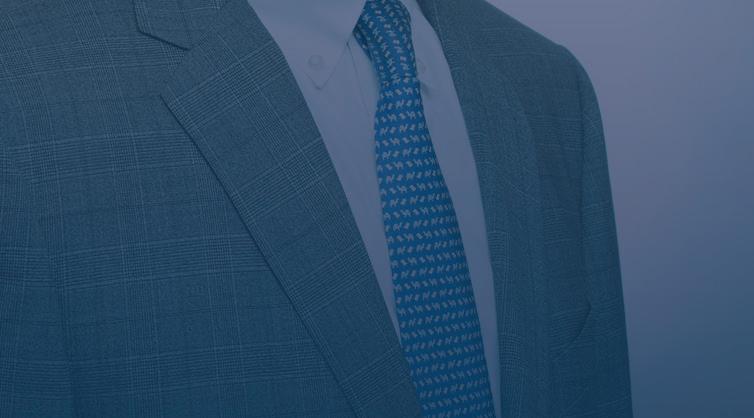
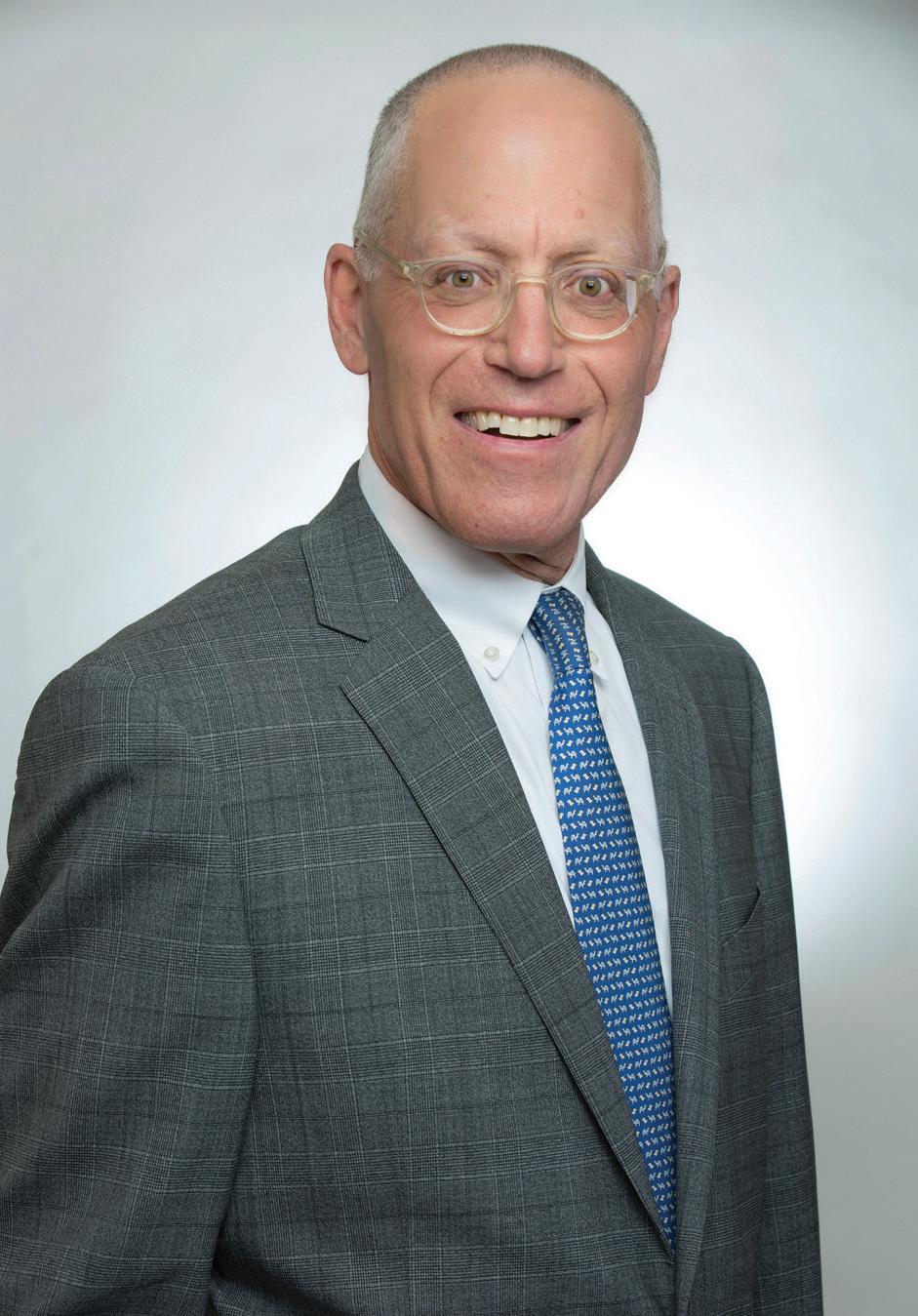
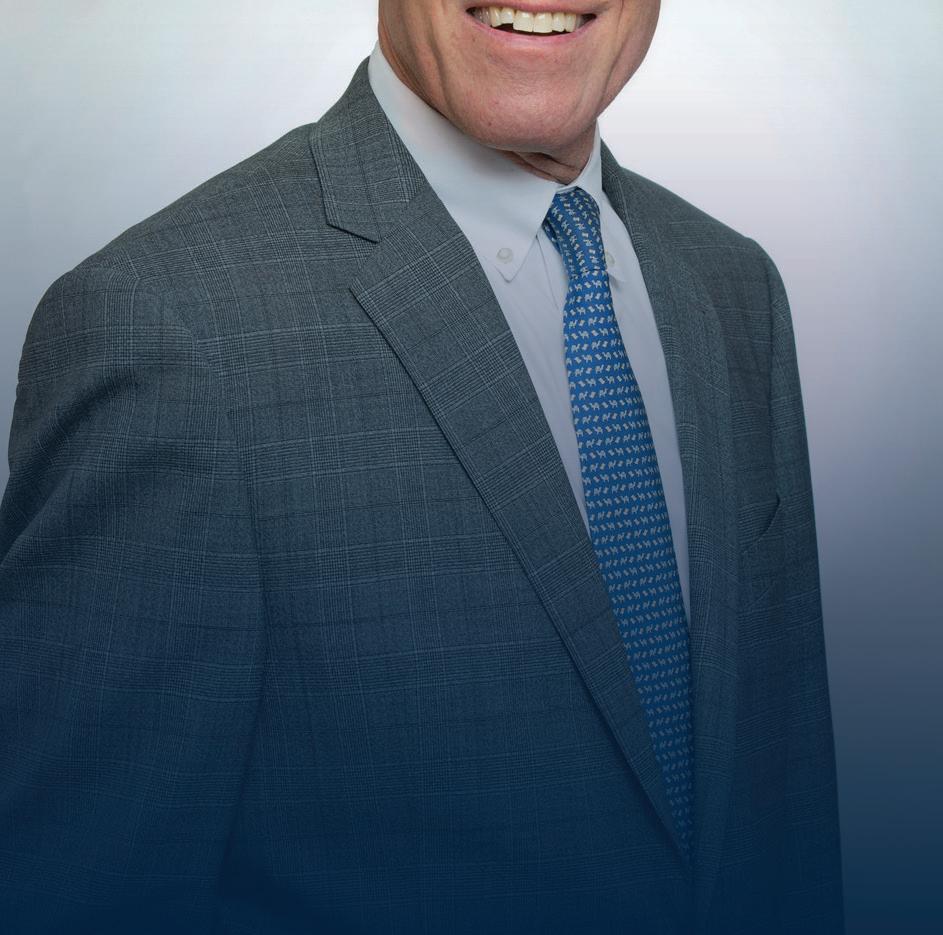
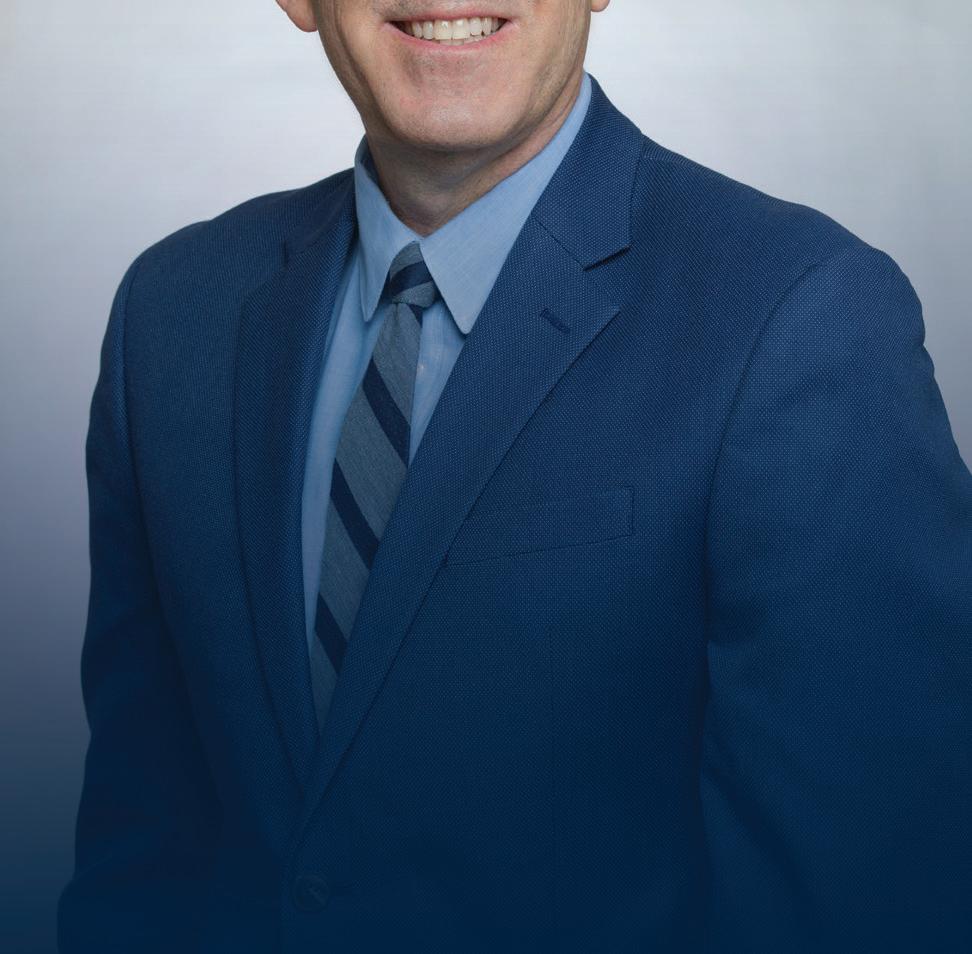
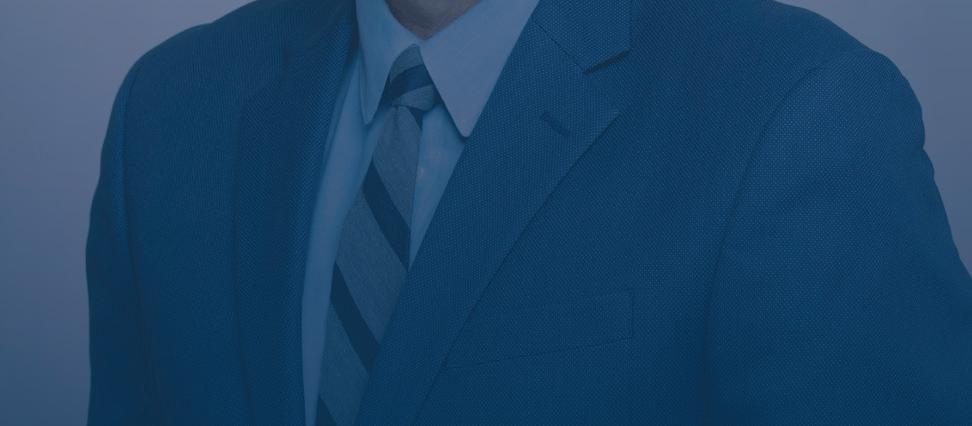
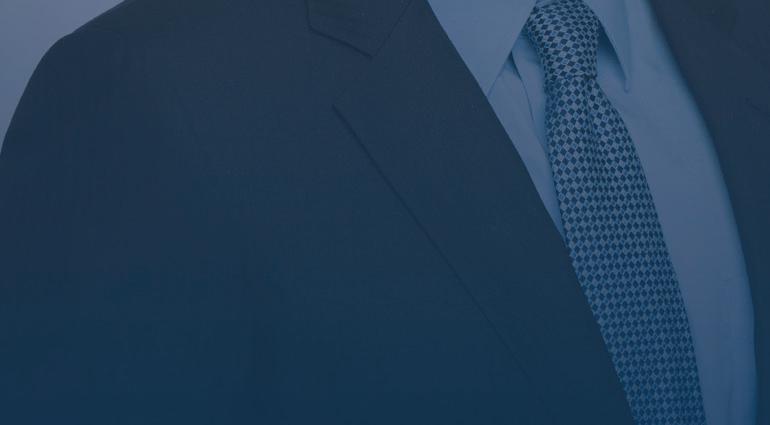
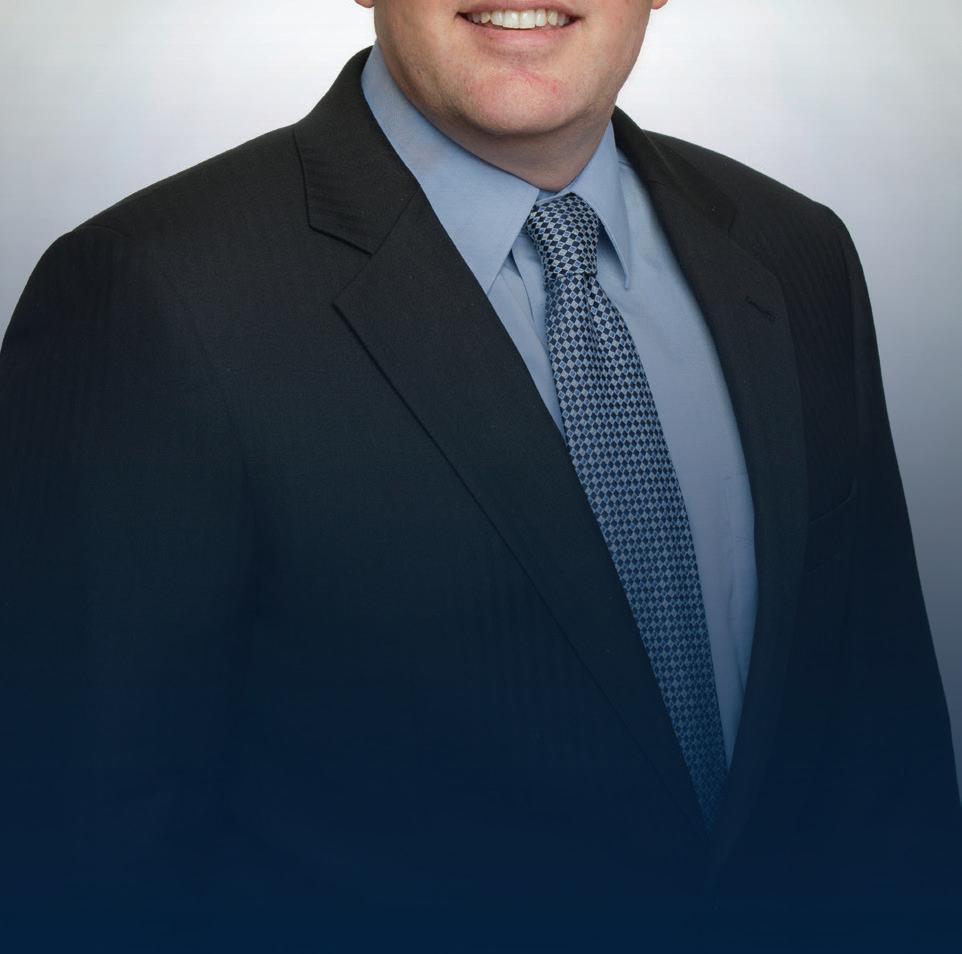


$500,000. This change lasts through 2029 and then reverts. Homeowners in high-tax states may finally get relief from the SALT deduction cap, which has been a sore spot since 2017.
The newly enacted legislation introduces a tax-deferred investment vehicle informally referred to as a “Trump Account.” For children born between January 1, 2025, and December 31, 2029, the federal government will contribute $1,000 to an account that may be used once the child reaches age 18 for qualified expenses such as higher education, first-time home purchases or vocational and skills training. If parents or guardians do not initiate the account, the U.S. Treasury Department will automatically establish one for eligible children. Families and donors — including parents, grandparents and extended relatives — may each contribute up to $5,000 annually, with the limit indexed to inflation, thereby supporting long-term financial planning for the next generation.
The bill also increases the Child Care Tax Credit to $2,200 per qualifying child, further enhancing support for working families.
One of the most significant advantages
of the One Big Beautiful Bill Act is the enhanced predictability it introduces into the federal tax landscape. Unlike prior legislation that included sunset provisions or temporary measures subject to periodic renewal, many of the Act’s key changes — particularly those affecting estate and income tax — are structured to remain in effect indefinitely. This legislative stability affords individuals and families a valuable opportunity to engage in longterm planning without the urgency often imposed by expiring provisions.
However, it is important to recognize that “permanent” in legislative terms does not mean forever. Tax laws are inherently subject to revision, and future congressional or executive action could alter the current framework. Accordingly, it is prudent to take advantage of the present environment to revisit your estate plan and reassess your broader tax strategy.
Even for individuals who already have an estate plan in place, a comprehensive review is advisable. Many plans were drafted under prior exemption thresholds and may now result in unintended distributions or missed planning opportunities. Updating your documents ensures alignment with current law and reflects your present intentions.
Whether you are a retiree seeking

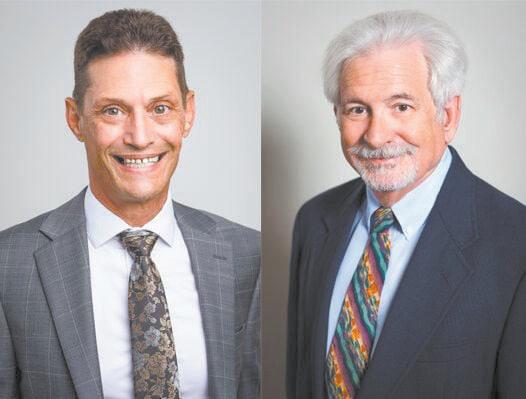
to preserve income streams such as Social Security, a parent planning for intergenerational wealth transfer or a business owner evaluating deductions and entity structure, the One Big Beautiful Bill Act likely affects your financial position in meaningful ways.
This is an opportune moment to bring your financial affairs into alignment with the law as it stands while the
regulatory landscape is stable, and the planning opportunities are both clear and substantial. JN
Mark Bregman has been an estate planning attorney for over 40 years. Steve Tutnick recently joined Dyer Bregman Ferris Wong & Carter, PLLC’s estate planning group. For more information, contact 602-254-6008 or info@ DBFWCLegal.com or visit DBFWCLegal.com.
Advertorial
When life changes unexpectedly, families often face questions that go beyond legal issues — they face uncertainty about their future. At our firm, we believe that every family’s story deserves clarity, compassion and advocacy. For decades, we’ve stood on three pillars: Integrity, Dedication and Excellence. These aren’t just words, they’re the foundation of how we serve our clients. From the first conversation to the final resolution, we deliver honest answers, keep promises and fight for outcomes that honor your loved ones and protect what matters most.
WHAT WE DO
We focus exclusively on probate, trust and estate litigation, helping clients navigate some of life’s most challenging legal issues, including:
• Contested wills and trusts: Disputes over validity, capacity or undue influence.
• Fiduciary duty claims: Holding trustees and personal representatives accountable.
• Guardianship and conservatorship: Protecting vulnerable loved ones from exploitation.
• Estate administration challenges: Resolving conflicts over property distribution and claims, such as community/separate property disputes. These cases often involve high emotions and complex laws. Our role is to bring clarity, strategy and compassion to every step. Our goal is to bring peace of mind. All with integrity, dedication and excellence.
• Focused expertise: We don’t dabble — we specialize in probate, estate and trust litigation, contests and disputes.


• Strategic advocacy: Every case begins with a clear plan tailored to your goals.
• Transparent communication: Real-time updates and straightforward billing keep you informed.
• Proven commitment: Our team invests in growth and training programs to ensure our team is up to date.
Call us today for a confidential consultation.

Happiness Hour: 11:30 a.m. Online. Class taught by Rabbi Pinchas Allouche that delves into texts and references culled from our traditions to address a relevant topic. For more information or to join, visit cbtvirtualworld.com.
Lunch & Learn: 12 p.m. Online. Grab some food and learn with Rabbi Yehuda Ceitlin. Use this link: Facebook.com/ChabadTucson. Cost: Free. For more information, visit chabadtucson.com.
Grief Support Group: 5-6 p.m. Online via Zoom. Therapist Susan Charney MCW, LCSW, leads a grief support group every first and third Wednesday of the month virtually for individuals experiencing the loss of an adult child or sibling. In lieu of any fees for these sessions, donations to Temple Solel are appreciated. For more information, contact susancharneycounseling@gmail.com.
History of the Jews: 7 p.m. Online. Learn the Jewish journey from Genesis to Moshiach with Rabbi Ephraim Zimmerman. Use this link: zoom.us/j/736434666. Cost: Free. For more information, visit chabadaz.com.
JACS: 7:30-8:30 p.m. Online. Zoom support group for Jewish alcoholics, addicts and their friends and family on the first and third Wednesdays of the month. Cost: Free. For more information, email jacsarizona@gmail. com or call 602-692-1004.
THURSDAYS
Kindness, Courage and Joy Course: 10-11:30
a.m. Oct. 9, 16 and 23. Temple Beth Shalom of the West Valley, 12202 N. 101st Ave., Sun City. Join Rabbi Dana Evan Kaplan and discuss how understanding what kindness, courage and joy are can be the first step towards deepening a commitment to becoming fully human. Cost: $20 for members; $35 for nonmembers. Registration deadline is 12 p.m. on Oct. 6. For more information, visit tbsaz.org.
Ladies Torah & Tea: 10:30 a.m. Online. Learn about the women of the Torah with Mrs. Leah Levertov. Use this link: ourjewishcenter.com/ virtual. Cost: Free. For more information, visit chabadaz.com.
Talmud - Maakos: 11 a.m. Online. Learn with Rabbi Shlomy Levertov. Cost: Free. Use this link: JewishParadiseValley.com/YJPclass. For more information, visit chabadaz.com.
The Science of Everything: 11 a.m. Online. Explore the most fundamental work of Chassidut: the Tanya, with Rabbi Boruch. Use this link: zoom.us/j/736434666. Cost: Free. For more information, visit chabadaz.com.
Weekly Mahjong: 1-3 p.m. Temple Solel, 6805 E. McDonald Drive, Paradise Valley. Join Temple Solel each Thursday afternoon for mahjong. Lessons available for beginners. Cost: Free. RSVP via email to dottiebefore@gmail. com so they know how many tables to set up.
Torah Portion Class: 7 p.m. Online or in person. Chabad Lubavitch of Fountain Hills, 16830 E. Avenue of the Fountains, Fountain Hills. Join Rabbi Mendy Lipskier for a discussion of the weekly parshah and gain new insights to the Torah. For more information, visit jewishfountainhills.com.
Teen Discussions: 7-8:30 p.m. Online. Learn with Rabbi Tzvi Rimler. Use this link: cteen. clickmeeting.com/east-valley. Cost: Free. For more information, visit chabadaz.com.
SATURDAYS
Saturday Mindfulness Gatherings: 9:30 a.m. Online. Hosted by Hospice of the Valley. To join by phone, dial 1-253-215-8782, meeting ID 486 920 2119#. To get the Zoom link or for
more information, contact Gill Hamilton at ghamilton@hov.org or 602-748-3692.
Book Discussion: 1:30-2:30 p.m. Online. Join Or Adam Congregation for Humanistic Judaism on the third Saturday of every month for a book discussion. For more information and to register, contact oradaminfo@gmail.com.
FRIDAYS
Tot Shabbat: 9:30 a.m. Ina Levine Jewish Community Campus, 12701 N. Scottsdale Road, Scottsdale. Join the Bureau of Jewish Education of Greater Phoenix monthly for music, parachute play, crafts and a family Shabbat experience. For more information, visit bjephoenix.org.
Welcome Shabbat: 11-11:30 a.m. Online. Celebrate Shabbat with the JFCS Virtual Center for Senior Enrichment. Each week a different guest host will lead the program with song and celebration. Cost: Free. For more information, visit jfcsaz.org/cse.
Shabbat at Beth El: 5:45 p.m. on Zoom; 9:30 a.m. at Beth El Phoenix, 1118 W. Glendale. Ave., Phoenix or livestreaming at tinyurl.com/beclivestream. Celebrate Shabbat with songs, blessings and teachings with Rabbi SteinKokin and Cantor Sarah Bollt. For more information or to join, visit bethelphoenix.com.
Erev Shabbat Service: 5:30 p.m. Online. Rabbi Alicia Magal will lead a service livestreamed for members of the Jewish Community of Sedona and the Verde Valley. Cost: Free. For more information and to obtain the Zoom link, visit jcsvv.org/contact.
Shabbat Service: 5:30-6:30 p.m.; Oneg at 5 p.m. Temple B’rith Shalom, 2077 Brohner Way, Prescott. Join Temple B’rith Shalom for a musical and spiritual Shabbat service. For more information, visit brithshalom-az.org.
Shabbat Services: 5:30 p.m. nosh, 6:15 p.m. service; morning service has varying dates and times. Temple Chai, 4645 E. Marilyn Road, Phoenix. For more information, contact Joan Neer at jneer@templechai.com.
Pre-Shabbat Kiddush Club: 6 p.m. Online. Say Kiddush with Rabbi Mendy Levertov. Cost: Free. Use this link: ourjewishcenter.com/virtual. For more information, visit chabadaz.com.
Shabbat Services: 6 p.m; 9:30 a.m.; followed by a light Kiddush lunch. Beth Emeth Congregation of the West Valley, 13702 W. Meeker Blvd., Sun City West. For more information call 623-584-7210 or visit bethemethaz.org.
Shabbat Services: 6 p.m; 9:30 a.m. Congregation Or Tzion, 16415 N. 90th St., Scottsdale. Services are also live streamed at otaz.org/ livestream. For more information about services, events and membership, visit congregationortzion.org or call 480-342-8858.
First Friday Shabbat Services: 6:15 p.m.; Oneg at 7:15 p.m. Valley Unitarian Universalist, 6400 W. Del Rio St., Chandler. Join Congregation NefeshSoul for Friday night services the first Friday of each month in the sanctuary building of Valley Unitarian Universalist. For more information, contact Jim Hoffman at 480-329-3316.
Shabbat Services: 6:15 p.m; 10 a.m. Congregation Beth Israel, 10460 N. 56th St., Scottsdale. Services held in the Goldsmith Sanctuary. Participants must pre-register by Thursday at 5 p.m. Priority will be given to members first and then guests. If there are more requests than available seats a lottery system will be
used. For more information or to make a reservation, visit cbiaz.org/shabbat-services.
Kabbalat Shabbat and/or Shabbat morning service: 6:30 p.m.; 10 a.m.; dates vary. Congregation Kehillah, 5858 E. Dynamite Blvd., Cave Creek. Join Rabbi Bonnie Sharfman and cantorial soloists Erica Erman and Scott Leader either in person or via Zoom. For safety reasons, please register ahead of time. For dates, visit congregationkehillah.org/event/. Register by emailing info@congregationkehillah.org.
Shabbat Services: 7 p.m. Temple Beth Shalom of the West Valley, 12202 N. 101st Ave., Sun City. Services are followed by an Oneg. Services are live-streamed on YouTube. For more information and to get the YouTube link, visit tbsaz.org or call 623-977-3240.
Shabbat Services in Sun Lakes: 7-9 p.m. Sun Lakes Chapel, 9240 E. Sun Lakes Blvd. North, Sun Lakes. Sun Lakes Jewish Congregation conducts Reform Shabbat services on the second Friday of each month. New members welcome. For more information, call 480-6124413 or 480-580-1592.
Shabbat Services with Beth Ami Temple: 7 p.m. Services held at Unitarian Universalist Congregation of Phoenix, 4027 E. Lincoln Dr., Paradise Valley. Join Beth Ami Temple Rabbi Alison Lawton and Cantorial Soloist Michael Robbins as they lead Shabbat services twice a month. For more information, visit bethamitemple.org.
Third Friday Shabbat: 7-9 p.m. Group meets at a North Scottsdale location. The Desert Foothills Jewish Community Association hosts a Shabbat service followed by a program. Contact 602-487-5718 for more information.
MONDAYS
Fitness Xpress Series with Zoe: 11-11:30 a.m. Online. Presented by JFCS Center for Senior Enrichment. Workout features weight and band exercises as well as yoga poses. Exercises will be demonstrated standing, but can also be done sitting in a chair. Cost: Free. For more information, visit jfcsaz.org/cse.
Sip & Schmooze: 11 a.m. milk + honey, 12701 N. Scottsdale Road, Scottsdale. Sip on kosher coffee or tea, enjoy a pastry and schmooze every second Monday of the month. RSVP appreciated to chani@sosaz.org or 602-4927670. For more information, visit sosaz.org.
Featured Presentation: 12:30 p.m. Online. Join Smile on Seniors Mondays and Wednesdays to learn from a variety of presenters about topical issues, like Q&As with medical professionals, entertainers and lectures. Cost: Free.
BAT MITZVAH

For more information, visit sosaz.org/virtual or email Rabbi Levi Levertov at levi@sosaz.org.
TUESDAYS
Movie Discussion Group: 11 a.m. Online. Join Smile on Seniors on the third Tuesday of every month hosted by Issy Lifshitz. Cost: Free. For full details and the movie of the month visit sosaz.org/virtual or email Rabbi Levi Levertov at levi@sosaz.org.
WEDNESDAYS
Fitness Fun with Zoe: 10-10:45 a.m. Online. Presented by JFCS Center for Senior Enrichment. Workout features light chair exercises with optional weights. Cost: Free. For more information, visit jfcsaz.org/cse.
Chair Yoga with Zoe: 11-11:45 a.m. Online. Presented by JFCS Center for Senior Enrichment. 45-minute chair yoga class. No prior yoga experience required. Cost: Free. For more information, visit jfcsaz.org/cse.
THURSDAYS
Memory Cafe: 10-11 a.m. first Thursday; 1-2 p.m. third Thursday. Online. Presented by Jewish Family & Children’s Service. Program for those with changes in their thinking or memory, mild cognitive impairment due to Alzheimer’s disease or a related disorder, along with their care partners. For more information, visit jfcsaz.org/our-services/ older-adult-services/memory-cafe/.
In the Kitchen with Benita: 12:30 p.m. Join Smile on Seniors on the fourth Thursday of every month for some delicious cooking or baking fun! Cost: Free. For full details visit sosaz.org/virtual or email Rabbi Levi Levertov at levi@sosaz.org.
FRIDAYS
Welcome Shabbat: 11-11:30 a.m. Online. Celebrate Shabbat with the JFCS Virtual Center for Senior Enrichment. Each week a different guest host will lead the program with song and celebration. Cost: Free. For more information, visit jfcsaz.org/cse.
Sit or Stand Ballet Class: 12-12:45 p.m. Online. Presented by JFCS Center for Senior Enrichment. Jennifer Cafarella Betts and Friends from Ballet Theatre of Phoenix teach this class. Grab a chair or you can stand next to a chair or counter. Cost: Free. For more information, visit jfcsaz.org/cse.
Musical Friday: 12:30 p.m. Online. Join Smile on Seniors on the first Friday of every month for a musical presentation. Cost: Free. For full details visit sosaz.org/virtual or email Rabbi Levi Levertov at levi@sosaz.org. JN
Tyler Elle Feldman will become a bat mitzvah on Oct. 25, 2025, at Beth El Congregation. She is the daughter of Leslie and Andrew Feldman of Phoenix.
Tyler’s grandparents are Karen and Richard Feldman of Phoenix; Michael Kornreich and Dona Levy of Paradise Valley; and the late Toby Kornreich.
For her mitzvah project, Tyler furnished an apartment for a Jewish Ukrainian refugee family that has resettled in Phoenix. Tyler helped to collect everything they needed to rebuild their lives here in the United States.
A student at Phoenix Country Day School, Tyler is passionate about soccer and plays on a club team as well as on her school’s middle school team. She enjoys traveling, the outdoors, staying active, spending time with friends and summers at Shwayder Camp. She is also a proud big sister and loves her two dogs. JN